‘Native art is information’
For Miranda Belarde-Lewis, artwork is a window into Indigenous knowledge


INFO’S 20/20 VISION
As the program marks 20 years, it’s keeping its eye firmly on the future of people and technology
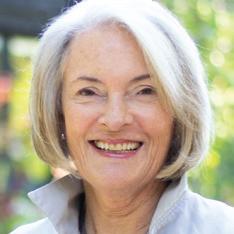
‘A FORCE OF NATURE’
2020 Distinguished Alum Jill McKinstry has had a lasting impact on the UW Libraries
Our mission matters more than ever
By the time this magazine is in your hands, hopefully we will know who won the Nov. 3 elections and what direction our country will take. Regardless of those results, we’ve been through a contentious time, full of hardship for far too many people. When we emerge from these crises, we have to envision a better future — and how our work can help take us there.
COVID-19 and the social unrest of 2020 have underscored the importance of being nimble and doing work that addresses real-world problems. That’s exactly what I love about the iSchool. We adapt quickly, and our work translates to tangible results. To cite just a few examples: The Center for an Informed Public, led by Associate Professor Jevin West, is focusing on disinformation campaigns and the potential for intervention through public library programming and digital literacy education; and Associate Professor Chirag Shah’s InfoSeeking Lab is showing how search engines allow misinformation to spread. The iMed research group, led by Professor Wanda Pratt, is focusing on ways to improve doctor-patient communication and prevent medical errors. And a new justice-focused computer science teaching endorsement, which Professor Amy Ko is developing with the College of Education and the Allen School, will train teachers in a vital aspect of technology instruction that’s too often ignored.
Through our teaching and outreach, the iSchool is educating information professionals to lead where institutions such as government and media have failed. We don’t want to be the fact checkers for the world, but we do want our alumni to know how to sort facts from deceptions, how to design technologies that are good for people’s well-being, and how to use information as a tool for social justice.
As we’ve confronted racial injustice and hostile immigration policies this year, it’s been inspiring to watch

the iSchool come together to support underrepresented people and international students in our community. But it’s not enough just to voice our support; we need to back it with our actions. Our staff and faculty have gone the extra mile to help international students continue their studies here. Meanwhile, our LIS faculty, led by program chair and Professor Michelle H. Martin, made significant updates to course content to double down on our commitment to diversity, equity and inclusion. We are starting to see more of the same across the iSchool.
When 2020 ends (and I promise it will), we’ll still face the urgent issues of systemic racism, climate change, threats to democracy, the ongoing COVID-19 crisis and other public health challenges. These are all information problems, at least in part, and addressing them will require the combined expertise of the extended UW community. Because the iSchool attracts scholars from so many disciplines, we are uniquely positioned to lead the UW’s interdisciplinary efforts. In some initiatives, such as the Center for an Informed Public, we are leading through research and outreach; in others, such as the University’s Population Health Initiative, we are leading by being willing partners and bringing people together.
This year, we’ve had to learn a new way to live. We’ve been challenged by demands for racial justice and bombarded with misinformation. Our mission at the iSchool has never been more urgent, and the need for information professionals has never been more pronounced. People are looking to us to lead. Now is the time to grab that mantle.
— Anind K. Dey, Dean and Professor
INSIDE CIP in gear for pandemic Misinformation about COVID-19 quickly drew attention from the Center for an Informed Public 12 Dynamic duo shapes MSIM In five years, Hala Annabi and Sean McGann have modernized and redefined the program 30 Practical knowledge After serving as the state librarian, Cindy Aden joins the iSchool to share her experience with students 34 Program highlights 3 Donor honor roll 7 Research 10 The Download 28 Faculty 32 Alumni updates 38 Achievements 41 In Memoriam 43 CREDITS Writing, editing and photography: Doug Parry, Maggie Foote, Jim Davis, Jessi Loerch, Mary Lynn Lyke, Michael Grass, Olivia Hagan Design: Katie Mayer Alumni relations: Tara Warming On the cover: Miranda Belarde-Lewis at the Tacoma Museum of Glass, photographed pre-pandemic (see Page 37) Photo by Doug Parry Copyright 2020 University of Washington Information School DEAN’S MESSAGE
2 | iNews
Shaping INFO’s next generation
By Doug Parry
Informatics students have long been the program’s biggest advocates. Led by the Informatics Undergraduate Association (IUGA) and Women in Informatics (Winfo) student groups, they’re putting their energy into “High School to iSchool,” an effort to increase the number of freshman-direct applicants and ensure those applicants come from diverse backgrounds.
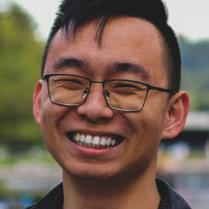
Senior Informatics major Aaron Zhao is among those leading the effort as diversity director for 2020-21. Zhao said he didn’t know about Informatics when he was in high school, but wishes he had. Students admitted as freshmen have a built-in community from Day 1, and they have more time to make the most out of their experience in Informatics.
“I feel like it’s better to know what you want to do before you get into college, and it helps you get into this competitive program as well,” he said.
At High School to iSchool events, teenagers get exposure to what Informatics is about — designing and developing technology to improve how organizations work and how people live. They also make connections with current Informatics students who can serve as mentors when they apply. Zhao takes pride that one student he met last year stayed in touch and was accepted to the UW as an Informatics major.
“Their accomplishment makes you

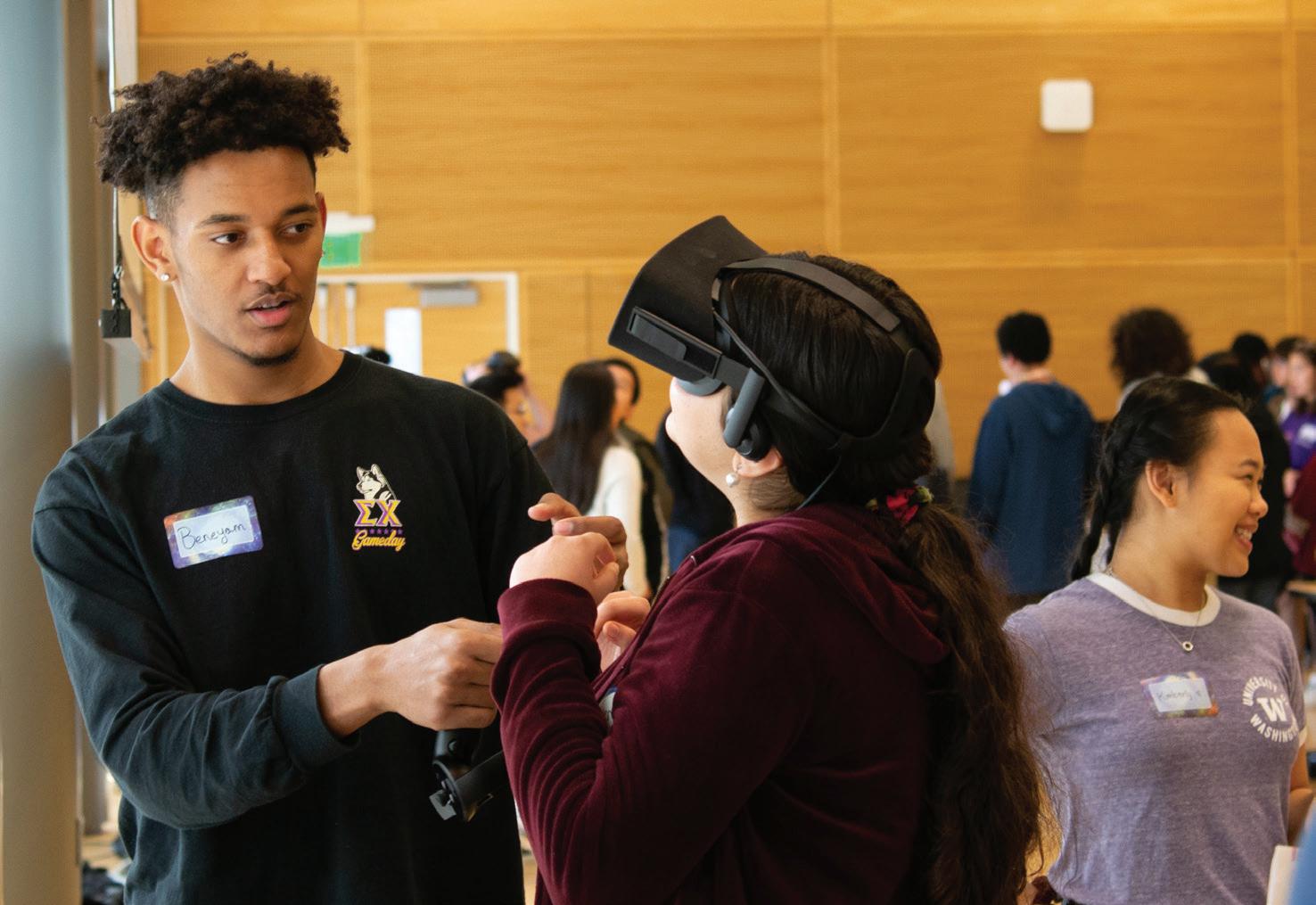
feel really fulfilled. You know that they want to do this and they’re capable of doing it,” Zhao said. “You just support them to help them present themselves to the admissions committee. That feeling is really great — not going to lie.”
High School to iSchool has grown to three events this academic year: a 2-week-long extended hackathon in fall quarter; winter quarter’s iTech Inclusion Symposium, which introduces teens to technology; and a daylong hackathon in spring.
While all students are welcome at the events, Informatics students are recruiting to further their goal of bringing more
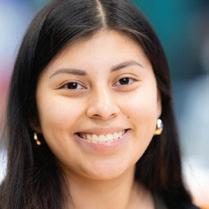
diversity to the program.
“We went in with the mindset that we were aiming for underrepresented minoritized students, and we blatantly said that. I think that’s an important step; it’s important to say what your goal is,” said Eva Perez, ’20, who was involved in the first High School to iSchool events. “Through that, we were able to create connections with different high schools that have more students of color.”
Learn more about High School to iSchool events at ischool.uw.edu/ high-school-ischool.
Alumni spotlight: Meran Hill, Informatics '13
NOW: EXPERIENCE DESIGN CONSULTANT, SLALOM
“I focus on user experience design, design systems and service design, delivering a variety of workshops and products for clients A recent highlight from a project with a local aerospace client includes leading a design sprint to explore a new market segment Ideation activities and wireframes aside, I believe my greatest impact is through teaching both clients and colleagues about the design process itself and why user-focused design matters ”
ischool.uw.edu | 3 PROGRAM HIGHLIGHTS | Informatics
A student helps a high school visitor with a VR headset during the 2019 iTech Inclusion Symposium. Photo by Doug Parry
Aaron Zhao
Eva Perez
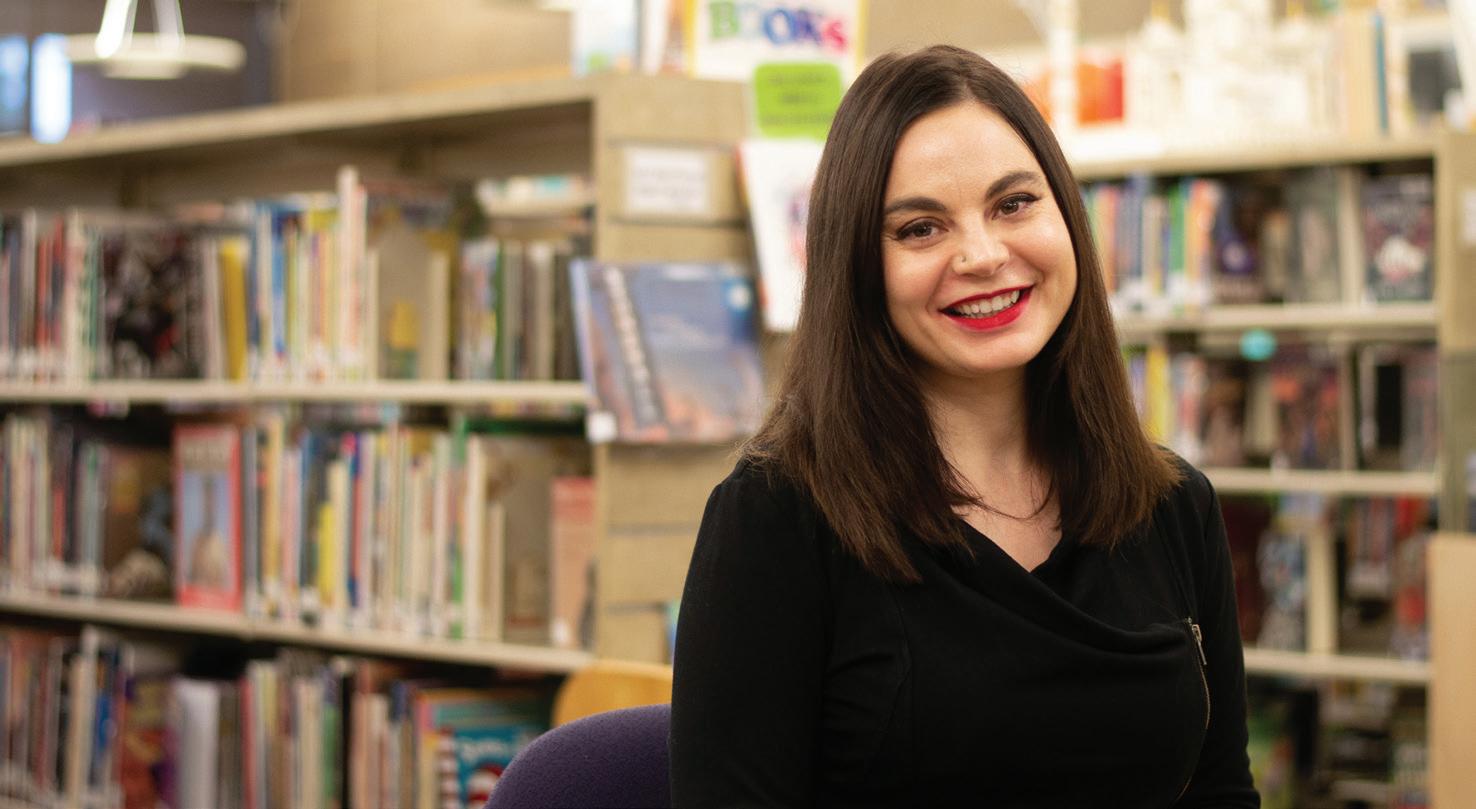
Her storytimes are now heard ’round the world
By Jessi Loerch
When COVID-19 required people to adapt quickly, Mandi Harris was ready. After her library canceled in-person events, it took her just a day to shift programs online.
Harris, the youth services supervisor at the Coeur d’Alene Public Library, had good role models for online learning — she graduated from the iSchool’s online Master of Library and Information Science program in 2019.
“Being an online student prepared me in ways I never could have guessed,” she said. “The professors were so capable and skilled at teaching online.”
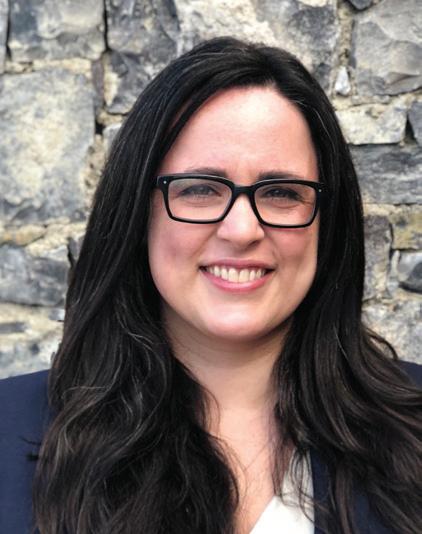
Harris’ experience in grad school made her very comfortable adapting to a new way of offering programming for library users — and because of that, she was able to provide a bit of normalcy for children and families during a hard time.
From her first job at a library, Harris has been struck by their important role. “I learned all the different ways a library could meet a community’s needs,” she said. “I really feel a part of the community at the library.”
Harris has found that online programs allowed her to strengthen relationships she already had and make new connections she never expected. She has attracted attendees to her storytimes
from locations including Vancouver, B.C.; Bangladesh; and the United Kingdom.
Harris also created take-home craft kits for kids, applied for and received a grant that provided 1,000 free books to kids who received free lunches during school closures, and curated a selection of kids’ books for people to browse once a portion of the library reopened.
In addition to her job, Harris has been working on a personal project that combines her library skills and her love of Indigenous literature. Harris, an enrolled citizen of the Cherokee Nation, knew that the Navajo Nation was hit hard by COVID-19. She used her Instagram and Twitter accounts to ask for donations to buy books by Indigenous authors. She raised more than $3,500 and sent more than 200 books to kids and teens in the Navajo Nation. “I was so overwhelmed — one person sent their entire $500 tax refund,” she said. “I couldn’t have done it without so much generosity.”
A lot of Harris’ recent work caught the attention of local and regional newspapers, as well as American Libraries, but it wasn’t the first time she was in the spotlight. Last year, her library had a problem with someone hiding books with liberal viewpoints. “Late Show” host Stephen Colbert learned that his book “Whose Boat is This Boat” was one of those being hidden. He sent the library an enormous edition of the book — one too big to hide.
Then one day, Harris came to work and her director asked, “How do you feel about reading that book for Stephen Colbert?” Harris read the whole book for a film crew — and was on the show briefly.
“It was incredible,” she said. “Who could predict that just by doing your job as a librarian, you’d have a few seconds on Colbert?”
Alumni spotlight: Kristina J. Alayan, MLIS Law, 2010
NOW: LAW LIBRARY DIRECTOR & ASST. PROFESSOR OF LAW, HOWARD UNIVERSITY
“The Law Library has successfully launched a partnership with Howard student leaders and main campus colleagues to encourage and support our community as they register to vote and secure absentee ballots during this destabilizing time We shared our efforts nationally and I’ve been thrilled to hear colleagues integrate this work at their institutions This work wouldn’t have been possible without the dedication of two outstanding iSchool MLIS interns, including one from the law librarianship program ”
4 | iNews PROGRAM HIGHLIGHTS | MLIS
Mandi Harris, photographed in Coeur d'Alene before the pandemic. Her experience as an online student helped her quickly shift library programs online. Photo by Doug Parry
1-year degree opens new doors
By Doug Parry
There were plenty of good reasons for the iSchool to enable students to earn their Master of Science in Information Management in as little as a year, but one stands out: access.
Program chair Hala Annabi and her predecessor in the role, Sean McGann, learned through research that the twoyear Early-Career option was not serving more cost-conscious domestic students who were considering one-year master’s programs such as MBAs. So a year ago, the iSchool introduced a one-year EarlyCareer option and welcomed its first cohort of 30 students. Now called the Early-Career Accelerated MSIM, the program track has gained a strong footing.
“Our program serves students from historically underserved communities,” said Annabi, an associate professor at the school. “The one-year inaugural cohort included domestic BIPOC students, military vets and first-generation college students. The one-year program provides more access, and we saw that in the first cohort.”
Like the two-year option, the EarlyCareer Accelerated MSIM emphasizes leadership skills while offering students the opportunity to concentrate on a specialization: Business Intelligence, Data Science, Information & Cyber Security, Information Architecture, Program/ Product Management & Consulting, or User Experience. It appeals to students from all undergraduate backgrounds, particularly social science graduates looking to add on a fifth-year master’s.
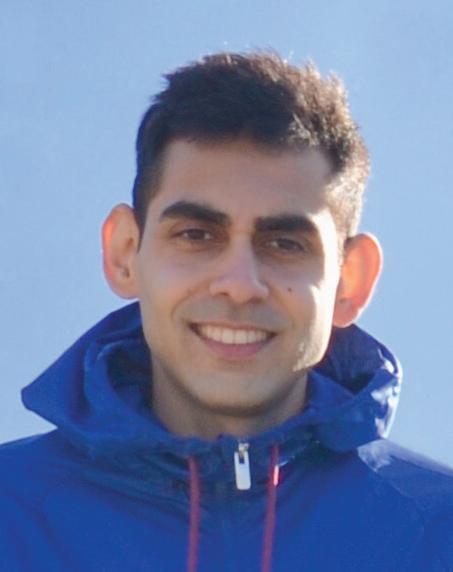
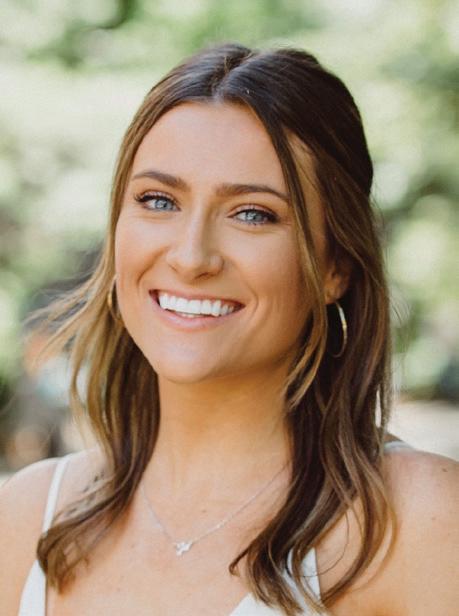

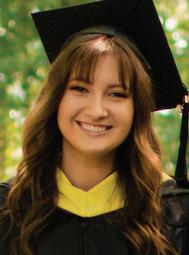
Recent UW graduates who majored or minored in Informatics are often well-suited to the program, said McGann, an iSchool teaching professor.
“They can extend what they’re doing in Informatics to get the more managerial, strategic, analytical, critical thinking and problem-solving skills that the MSIM program can offer in a year,” he said.
Hannah Gavin was one of those students. After earning her bachelor’s in communication with an Informatics minor, she was part of the first set of graduates from the new MSIM track, specializing in Business Intelligence. She recently accepted a full-time job as a technical product manager at T-Mobile in Bellevue.
“As an undergraduate student, and specifically through the Informatics program, I developed a passion for people and technology,” Gavin said. “I knew I wanted to pursue a career in the technology industry, and wanted to find a graduate program that would help me ex-
pand my knowledge and skills.”
Likewise, Jordan Lucas felt that adding a fifth-year master’s degree would allow him to be more marketable to potential employers.
“I knew I wanted to pursue tech, but it was hard because I didn’t have a STEM undergrad degree,” said Lucas, who earned his bachelor’s in political science. “I felt that having a master’s degree would bump me up to that next level that I needed.” He’s now working at the Allen Institute, a Seattle-based nonprofit that focuses on bioscience research.
Allison Ford discovered the MSIM after completing a bachelor’s in Anthropology at Central Washington University in 2019. She sought to expand her expertise in user experience.
“The one-year program allowed me to reach a higher education level and qualify for my dream job in a shorter time and with a lower cost than most programs," Ford said.
Alumni spotlight: Aditya Kaul, MSIM, 2016
NOW: BI ENGINEER, GOOGLE
“My work revolves around delivering data solutions that empower stakeholders to derive insights and solve large-scale business problems I extract and clean data from upstream systems to build a scalable and optimized data pipeline and finally deploy interactive visualizations that are used for leadership decisions enabling business prioritization and growth ”
ischool.uw.edu | 5 PROGRAM HIGHLIGHTS | MSIM
From left, Hannah Gavin, Jordan Lucas and Allison Ford were among the first group of students to graduate from the Early-Career Accelerated MSIM program.
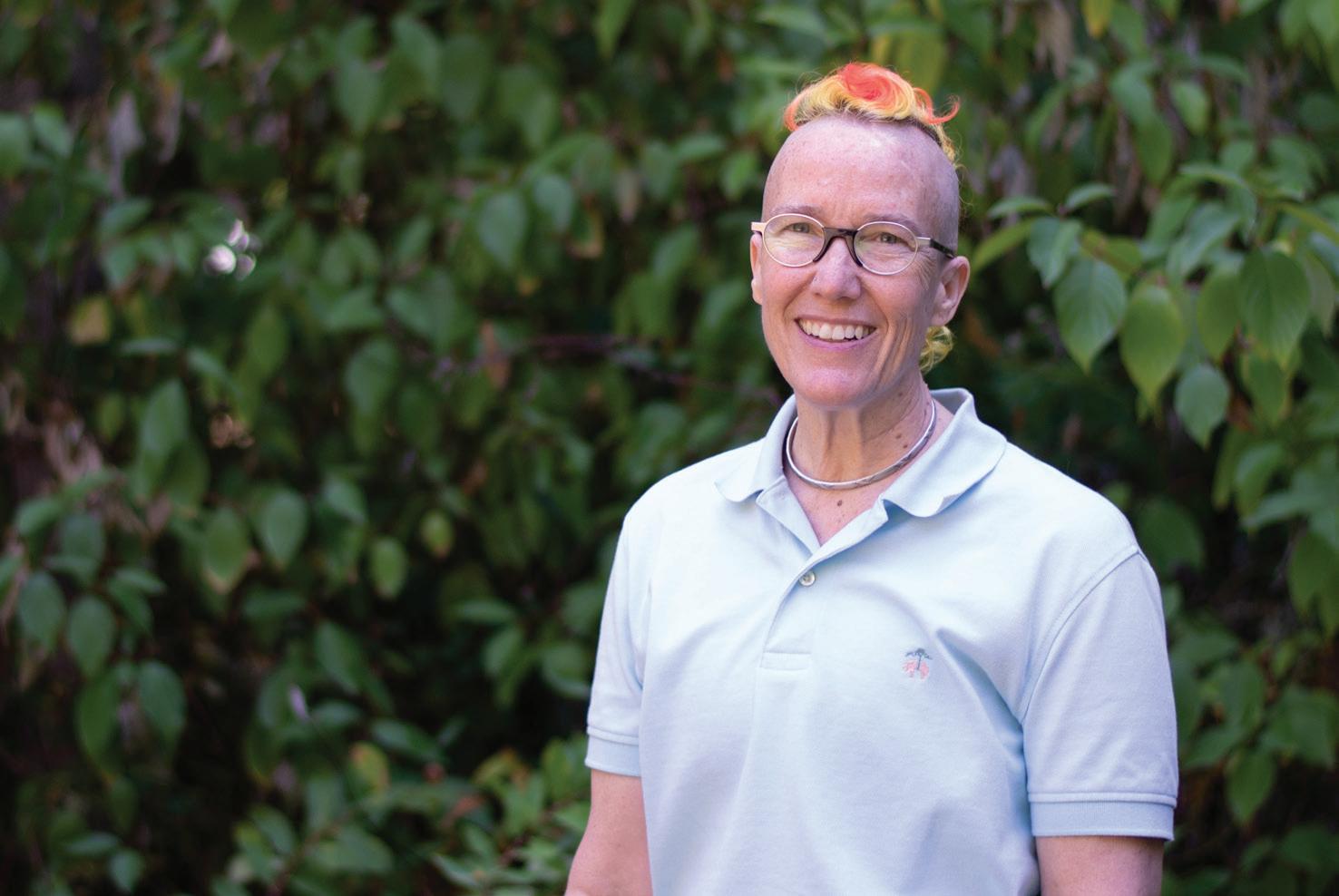
A perfect match
In online dating research, Mx WE King explores gender and sexuality through the lens of information science
By Jim Davis
Online dating companies eHarmony and Christian Mingle — two of the most popular websites for Christian singles — initially refused to offer same-sex matchmaking, conceding only after settling separate lawsuits.
Even then, the companies did so grudgingly: eHarmony created a separate site called Compatible Partners and Christian Mingle allowed users to view same-gender profiles but wouldn’t identify who else was seeking gay users.
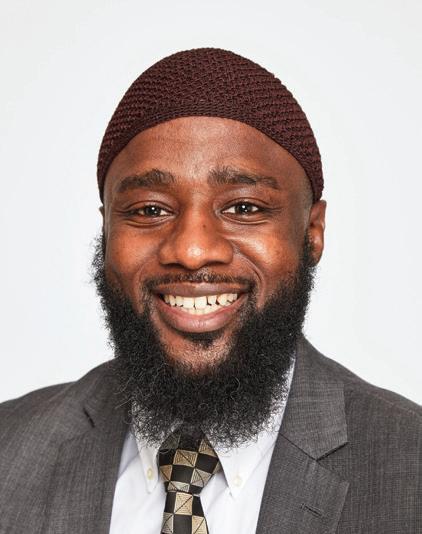
How have these companies evolved their approaches to same-sex matchmaking? What does this mean for LGBTQ+ Christians looking for lasting relationships? What about people who may not fit easily into the categories offered by dating sites?
These are questions asked by Mx WE King, an iSchool doctoral candidate. King is doing their dissertation on the experiences that LGBTQ+ Christians have with these sites and others.
“The message many of my LGBTQ+ Christian participants have received is
that they will never be loved, let alone marry,” King said. “When they experience this, it can be very traumatic for some of them.”
King won a $25,000 Dissertation Fellowship award to complete their research through the Louisville Institute, which funds religious study. King’s own experiences will inform the project. They are a queer Christian who met their wife, Paloma, on OkCupid. They taught a popular course on online dating last spring.
King has lived in the Seattle area since the 1990s, working as a freelance technical writer. They earned a master’s degree in comparative religion in 2015 at the UW Jackson School of International Studies.
Then King discovered the iSchool and its focus on studying information, technology, and people.
“I could study gender and religion from an information science perspective,” King said. “With my background as a tech writer and an undergrad degree in communication focusing on computer science, I was like, ‘Oh my gosh, this is perfect.’ ”
King hopes their work will encourage dating-app developers to incorporate more inclusive practices. They also hope their work will influence Christians, many whom are fearful of people with gender, sexual and relationship diversities outside the Christian norm.
Or, as King recalled from what they were taught as a conservative Christian, “All men should be like this, and all women should be like this.”
“It’s very homogenized and doesn’t respect the beauty and the diversity of humanity that God created,” King said. My hope is that my research will be used for positive change in both of those domains,” King said.
6 | iNews PROGRAM HIGHLIGHTS | Ph.D.
NOW: POSTDOCTORAL SCHOLAR, TECH POLICY LAB, UNIVERSITY OF WASHINGTON “My research explores how different social conditions impact people’s perceptions and uses of technology I am also interested in understanding the effects of digital inequities With the Tech Policy Lab, and in collaboration with the Value Sensitive Design Lab, I’m applying these interests to the Diverse Voices Project to both ensure COVID-19 inspired policy initiatives do not negatively affect underrepresented community members, and examine policies governing the delivery of digital services to incarcerated people ” Alumni spotlight: Lassana Magassa, Doctorate, 2020
$1,000,000+
•Bill & Melinda Gates Foundation
•John S & James L Knight Foundation
•Microsoft
$500,000+
•Alfred P Sloan Foundation
•William & Flora Hewlett Foundation
$100,000+
•American Library Association
•Association of Children’s Museums
•Mae Benne
•Boeing
•Connected Camps
•Costco
•Robert (‘91) & Larina (‘92)
Davis
•EdLab Group
•Mike & Carol Eisenberg
•Facebook
•Google
•Growth and Labour Markets in Low Income Countries Programme
•Donald & Lynda (‘72, ‘74) Horowitz
•IDRC
•Ithaka Harbors, Inc
•Eric & Christine Larsen
•LexisNexis
•Jill (‘69, ‘73, ‘87) & Joseph McKinstry
•Ursula Meyer (‘80)
•The Mozilla Foundation
•Steve (‘71,’75) & Sharon Orlick
•Priscilla (‘59) & John ('56, ‘59) Privat
•Sharon Stewart Reeves (‘69)
•Salesforce com
•Scan | Design Foundation by Inger & Jens Bruun
•The Seattle Foundation
•Marcie (‘69, ‘76) & David (‘68) Stone
•Mary Stowe
We thank the many alumni, friends, and organizations that supported the Information School during the University of Washington’s “Be Boundless” campaign.
From July 2010 to June 2020, your support has strengthened our community and funded iSchool initiatives, including the Center for an Informed Public, that will have far-reaching impact for years to come . Thanks to your partnership, the iSchool has more than doubled the number of endowments at the school and granted more than $1 .6 million in scholarships and fellowships to the information leaders of tomorrow .
For questions about this list or your contribution to the iSchool, please contact Michele Norris, Assistant Dean for Advancement: 206-543-4458 or mnorris@uw .edu .
•Washington Research Foundation
•Carol (‘69) & E James Woodward
$50,000+
•Baidu
•Boeing Employees Credit Union
•John Cole Jr (‘62, ‘63) & Nancy Gwinn
•Carol Doyle (‘57)
•East-West Management Institute, Inc
•Flowminder Foundation
•International Growth Centre
•Jacobs Foundation
•John D & Catherine T MacArthur Foundation
•Ann & Alan Johnson
•Mary (‘66) & Robert Levering
•Momoko Murakami (‘54)
•The Omidyar Group
•Pacific Science Center
•Nancy & Joseph Pearl
•Kabir (‘04) & Noreen (‘04, ‘09) Shahani
•Smartsheet com, Inc
$20,000+
•Cindy (‘87) & Greg Aden
•Adobe
•Accenture
•Amazon
•Anonymous
•Arizona Community Foundation
•James & Cherry Banks
•Behaivior
•BlackRock
•Devindra Chainani
•Quentin (‘08) & Karalee Christensen
•Cisco Systems
•Beverly Cleary (‘39)
•Comcast Corporation
•Kevin (‘05) & Kelly (‘00)
Cushman
•Richard Dakin
•Katie Davis
•The Denver Foundation
•Lynn (‘73) & Greg Detweiler
•Jessica Dorr (‘98) & Stephen Hansen
•Lee Dresang & Kari Bloedel
•Steven Dresang & Charlene Robins
•Lauri (‘94, ‘96) & Josh Ellis
•Ex Libris
•Extrahop Networks, Inc
•Friends of the Edmonds Library
•Gale/Cengage Learning
•Nancy Gershenfeld (‘91)
•Linda Gould (‘66, ‘70)
•Peggy & Sam Grossman
•The H W Wilson Foundation
•HERE Technologies
•Jess (‘02) & Dawn Holbrook
•Leslie & Glen Holt
•inome, Inc
ischool.uw.edu | 7
•Intel
•William Jones & Maria Staaf
•Tracy Kempf
•Jonell (‘99, ‘02) & Christopher (‘03, ‘07) Lee
•Anna Leith (‘59)
•Georgia Lomax (‘84)
•Irvin MacQuarrie Jr (‘05)
•Nancy Magnuson (‘78)
•Marilyn & Robert Mason
•Jamie McCornack
•Molly (’59, ‘65) & Edmond Mignon Jr (‘59)
•Christopher & Rachel Miller
•Frank (‘66) & Mary (‘65)
Montgomery
•Tom Morgan
•Morgan Stanley Global Impact Funding Trust
•Parsons Brinckerhoff Group Administraton, Inc
•Ryan (‘05) & Jamie Prins (‘05)
•Jeannette Privat (’60, ‘69)
•Sam & Peggy Grossman Family Foundation
•Seattle Public Library Foundation
•Spencer Shaw
•Slalom, LLC
•Peter & April Spiro
•Starbucks
•Geevy & Elizabeth Thomas
•Verizon Communications, Inc
•Alex Wade (‘95)
•Carla Wale (‘11)
$10,000+
•Jenny (‘02) & Jeffrey Abdo
•Adobe Systems, Inc
•Association of Internet Researchers
•Avanade
•Lorraine & Harry Bruce
•Cable in the Classroom
•Corinne Campbell (‘66)
•Evelyn Carlson (‘14)
•CDK Global, Inc
•Challenge Seattle
•Anna Chapman
•Chandan & Geeta Chauhan
•Chemical Heritage Foundation
•Malcolm Cleary
•Coalfire
•Michael Crandall (‘86) & Maryann Savina (‘73, ‘77)
•Dorothy Davis (‘61)
•Deloitte
•DocuSign
•Epic Games, Inc
•Kimberly & Timothy Hargraves
•Jessie & Tony Hey
•Mary Hotchkiss & Mary Whisner (‘77)
•International Infomatics Group
•Kris Kutchera (‘09)
•Morningstar
•Online Computer Library Center, Inc
•Paul M Anderson Foundation
•PitchBook Data, Inc
•Marisa Quinn & Matthew Jaffy (‘96, ‘00)
•Rose Foundation
•Agueda Sanchez (‘05)
•Matthew & Sharon Saxton
•Patricia (‘75) & Michael (‘71, ‘75) Scott
•Stephanie Singer (‘15)
•Joseph Tennis (‘05) & Bradley Bergman
•T-Mobile
•U S Bank
•Betty Wagner (‘51)
•Jennifer Waller (‘09)
•West Monroe Partners
•David Wu (‘90)
•Michelle Wu (‘95)
$1,000+
•3M Company
•Norah Abokhodair (‘11, ‘17) & Yavor Georgiev
•Accuvant LABS: Advisory Solution
•Susan Ace (‘73)
•Adaptive Data
•Blaise Aguera y Arcas & Adrienne Fairhall
•Patricia (‘79) & Robert Alderman
•AllTreatment com
•Allyis
•Paige (‘86) & Mary Andrew
•Apple
•Association of Bookmobile & Outreach
•Joan & Thomas Atkinson
•Tina Aure (‘84, ‘87)
•Automatic Data Processing, Inc
•John Backes (‘73) & Patricia Smith
•Lynne & Thomas Baker
•Scott Barker
•Battelle Memorial Institute
•Carolyn Beard (‘08)
•William Beaver (‘79)
•Eric Bell (‘10)
•Karen Bianchi (‘85)
•Barbara Bintliff (‘79)
•Lark Birdsong (‘09)
•James (‘04) & Kathryn Boaz II
•Mary Bocek-Comstock (‘09) & Mark Comstock
•Dana Bostrom (‘99)
•Andreas Braendle & Karin Schenkel-Braendle
•Zion Brewer (‘05)
•Theresa (‘74) & Arthur Brooks
•Kari (‘04) & Adam (‘06) Brothers
•Janet Bruman (‘72)
•Artie (‘58) & Sue Buerk (‘74)
•Ellen Byrnes (‘40)
•Steven (‘74) & Carol (‘74) Campbell
•Wenhong Cao (‘16)
•Diana Carey (‘69, ’69, ‘86)
•Cecile Carpenter (‘64)
•Christopher Cavnor (‘05)
•Center for Information, Ethics Law, & Policy
•Central Intelligence Agency
•Chan Zuckerberg Initiative
•Elaine Chu (‘03) & Gavin Shearer (‘05)
•Mary Clark & Marietta Ramel
•Rachel Ivy Clarke (‘13, ‘16)
•Cleary Trust
•Cloud Security Alliance
•Arlene (‘73) & Stephen Cohen
•Frank & Carol Coker
•Bruce Crandall
•Ellen Crosby (‘74)
•Patricia Cutright (‘83)
•MaryKay Dahlgreen (‘84)
•Kenneth & Marianna Deering
•Lori (‘90) & Christopher Deibel
•Lee Dirks & Judy Lew
•Jean (‘59) & Sam Dote
•Marjorie (‘83) & Daniel (‘79, ‘84) Doyle
•Eliza Dresang
•Lori Dugdale
•Gail Dykstra (‘69)
•Jeanne Eagleson (‘69) & John Gray
•Barbara Endicott-Popovsky (‘85) & Viatcheslan Popovsky
•Mary Ettel (‘79)
•Kay Ewing (‘75)
•Expera LLC
•John (‘00) & Linda Fagan (‘00)
•Joan (‘73) & Geoffrey (‘74, ‘78) Ferguson
•Raya Fidel
•Bruce & Pat (‘75) Finlayson
•Ivan Fisk (‘51, ‘66)
•Layne Foit (‘98, ‘02) & Nicole Stanley (‘11)
•Helen Forrestal (‘69)
•Michael (‘87) & Caroline (‘04, ‘11) Fors
•Forum One Communications
•Vanessa Fox
•Howard (‘74) & Joan Fox
•Batya Friedman
•Barbara Fritschel (‘92)
•Geoffrey (‘06) & Amanda Froh
•Jana (‘01) & Sean Fullerton
•Galois, Inc
•Curtis Garner
•Debra Gilchrist
•Danny Gonzalez (‘15) & Claire Daddino (‘15)
•Agnes Grady (‘70)
8 | iNews
•Pamela (‘93, ‘01) & Charles Green
•Joanne Greenspun (‘51)
•Agnes Griffen (‘65)
•Judy (‘71) & Bruce Hanson
•Rolf Hapel
•Scot Harrison (‘01)
•Kathleen (‘84) & Duston Harvey
•Penny (‘76) & Norris (‘93)
Hazelton
•Susan Henderson (‘67)
•Marshall (‘72) & Joyce Hesla
•Susan Hildreth
•Aaron & Jaime Hoard
•Donald & Karen (‘69) Holert
•Kari Holland (‘11)
•Katherine (‘66) & William Hood Jr
•Ziji Huang (‘10)
•Suzanne Hughes (‘72)
•Liane Hwang (‘03)
•Idaho Commission for Libraries
•Imagine Easy Solutions, LLC
•Kaoru (‘58) & Masaaki Inagawa
•Indiana University
•In-House Information Management
•Interactive Clarity, LLC
•IOActive, Inc
•Jill Jackson & Lisa Reitzes
•Ronald Johnson
•Rane Johnson-Stempson
•Jeremy (‘68) & Barbara (‘69) Jones
•Patrick Kehoe (‘66, ‘68)
•Teresa & Al Kent
•Ann Kitchel (‘87)
•Rita Krueger (‘67)
•Kathleen Kugler (‘72)
•Robert (‘85) & Jerri Larson
•Michele (‘69) & T T Leber
•Bobette Lee (‘71)
•Richard & Terrill LeFaivre
•Patricia Legg (‘67, ‘69)
•Brian Lent & Jennifer Brzana (‘99)
•Paul Lerg
•Liberty Mutual Group, Inc
•Madalene Lickey (‘71)
•Christine Livingston (‘78)
•Jim Loter
•Aaron Louie (‘03) & Kristen Shuyler (‘01, ‘05)
•Louise Luce (‘49)
•Lummi Indian Business Council
•Corinne MacLaurin (‘70)
•Nicole (‘03) & Stuart Maclean
•Mark Mader & Jane Porter-Mader
•Vani Mandava & Ankur Teredesai
•Skylar Marcum (‘10)
•Scott Matheson (‘01)
•Christopher Mathews (‘12)
•Priscilla Matthews (‘79)
•Mark Mattis
•Thomas Mayer (‘74) & Jeanne Thorsen (‘76)
•Roy (‘04, ‘07) & Betty Mayfield
•Monica (‘09) & Alan McCool
•Mclin Family Foundation
•Tamara & Scott Meredith
•Microryza
•Nancy Milligan (‘68)
•Milliman Consultants and Actuaries
•Cynthia Mitchell (‘06)
•Morgan & Claypool Publishers
•Paul & Susan Moulton
•Mary (‘69) & Wilbur (‘71, ‘77) Mundy
•Ken (‘80, ‘82) & Laurie Myer
•Neal Myrick & Paul Teske (‘14)
•Lisa Nathan (‘09) & Eric (‘11) Meyers
•Bryce (‘86, ‘81) & Bonnie Nelson
•Jennifer Nelson (‘18)
•Nisqually Tribal Office
•Angela (‘00, ‘02) & Ryan Nolet
•Bree Norlander (‘17)
•Oren Ogle (‘69)
•Ted Olson
•Pariveda Solutions, Inc
•Joshua Pennell
•Jason Phelps (‘11)
•Mary Kay Pietris (‘65)
•Kimberly (‘04) & Jeffrey Piira
•Premise Data Corporation
•Susan Presley (‘05)
•David Purcell & Kimberly Spurr
•Christine & Steve Putur
•Puyallup Tribe of Indians
•PwC
•Quadient
•Patricia (‘69, ‘77) & Robert Raichle Jr
•James & Birgitt Ratchford
•Cathy (‘79) & William Rathbone
•REI
•Nancy (‘69, ‘77) & Fred (‘75) Reich
•Matthew Reynolds
•Esther (‘75) & Robert Rickelton
•Marilyn Ring-Nelson (‘75, ‘76)
•James (‘09, ‘11) & Theresa (‘19) Rodgers
•Sherri Rogalski (‘00)
•Dominique Roosa
•Howard Roosa Jr
•Lisa Rosenblatt & Ernest Hood
•Lisa Rosenblum
•Patricia (‘82) & David Ross
•Edith (‘68, ‘79) & Michael (‘78, ‘81) Ruby
•Kenneth Rudolf (‘75, ‘82, ‘89, ‘90)
•George & Dion Russell
•The Russell Family Foundation
•Patrice Salas (‘05)
•Ann Samuelson (‘06)
•Ansel (‘13) & Sarah (‘13) Santosa
•Rivkah Sass (‘78)
•Aaron & Katherine Schmidt
•Scholastic, Inc
•William (‘01) & Kathy Schrier
•Cheryl & Wayne Scott
•Sealaska Heritage Institute
•Annie & Leroy Searle
•Seattle Public Library
•Ari Serim (‘06)
•Michael Showalter (‘92) & Nancy Gamble
•Stuart Shulman
•Linda Shultz & Lawrence Chazen
•Richard Shurman (‘72, ‘74)
•Mary (‘74) & Ronald Smith
•Sharyl Smith (‘70)
•Tad (‘02) & Jeanne Sommerville
•Alice Spitzer (‘70) & Michael Owen
•Spokane County Library District
•Richard Starnes
•Sunny & Mike Strong
•Judith Stumpff (‘80)
•Suquamish Indian Tribe
•Survey Analytics
•Irene Tallent (‘69)
•Taser
•Tracy Taylor
•Ralph (‘64, ‘72, ‘73) & Jeanette (‘66) Teague
•Telecentre Europe
•Daniel (‘77, ‘78) & Joanna (‘77, ‘78) Trefethen III
•Linda Tsang (‘67)
•Marcellus Turner
•Kelli Turner
•Ubiquiti Networks
•University of Texas San Antonio
•Jessica Van Buren (‘92)
•Ruth Van Dyke (‘77)
•Chittoor Venkataraman & Abirami Ramachandran
•Versive
•The Walt Disney Company
•Web Junction
•Winigent
•WISErg Corporation
•The Woodmark Group
•Eugene (‘51) & Nadine Wu (‘48)
•Bonnie (‘76) & Thomas Yee
•Zeyu Zhang (‘12)
ischool.uw.edu | 9
in flux Libraries
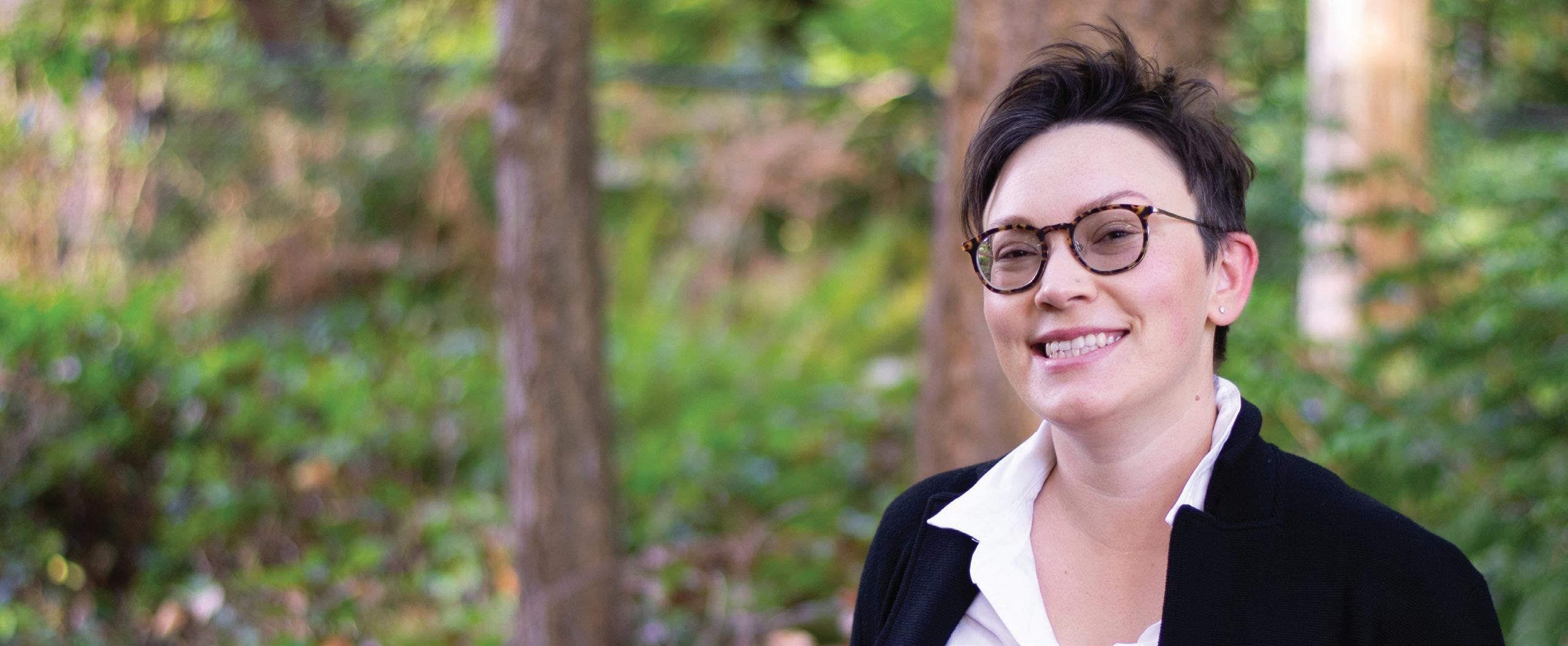
TASCHA study tracks how librarians are adapting to the pandemic
By Jessi Loerch
Libraries are a vital part of communities — a place to learn and connect with other people. And while libraries have long been more than the physical resources within their walls, that fact has been clearer than ever since the COVID-19 pandemic forced libraries to close their buildings.
As the pandemic changes everything, iSchool students and researchers are working to understand how librarians are adapting and how their programming is changing to meet community needs.
Katya Yefimova, an iSchool Ph.D. candidate, and Brandyn Boyd and Anna Gibson, Master of Library and Information Science students, are working on the research along with the Technology & Social Change Group (TASCHA).
Yefimova, Boyd and Gibson conducted
Updates
The Institute of Museum and Library Services awarded $476,000 to a team led by Associate Professor Hala Annabi for Autism-Ready Libraries, a project to develop a toolkit that will include programming and training materials to enable libraries to better serve autistic children
The IMLS awarded Professor Karen Fisher
interviews over the summer, and will conduct more in the fall and spring. Yefimova says the nature of the study will help them see the bigger picture of how libraries adapted over time.
“I really appreciate being able to focus across Washington,” Yefimova said. “It’s helpful, because it really varies — some are small libraries, some are big, some are urban, some rural. The pandemic has created really different situations for all of them.”
The information from the study will help librarians learn from each other and highlight areas where funding or professional development might be needed. The researchers plan to share results as they go, and the findings will also inform national research.
“Libraries have many different ways of reaching and interacting with people,” said Stacey Wedlake, a research coor-

$498,000 to research
whether public library staff experience symptoms of post-traumatic stress disorder due to incidents in the workplace The study will yield recommendations and curricula to aid library staff
The Technology & Social Change (TASCHA) research group released Development and Access to Information
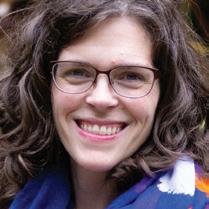
dinator and analyst with TASCHA.
“I think libraries as buildings are wonderful and important places for communities. One day we will be able to go back and be in community in these spaces. But librarians have a lot to give the communities in places that are not the library. They can reach communities in new ways and it’s a good thing to learn from this time.” Chris Coward, TASCHA director, said the work illustrates the impact of a $16 million grant TASCHA received from the Bill & Melinda Gates Foundation to continue the work of its Global Libraries Initiative.
“This grant enables us to be very nimble,” Coward said. “We didn’t know four years ago that COVID was going to hit. Post-COVID, there could be some
dashboards The data visualizations allow users to explore each nation’s progress toward United Nations Sustainability Goals, using data from the group’s reports to the U N View the dashboards at da2i-dashboards org
TASCHA has also partnered with the City of Seattle, Comcast and others to launch the Digital Bridge pilot program, equipping low-income job seekers with free laptops and broadband connectivity Research-
iSchool Ph.D. candidate Katya Yefimova, above, is interested in how the pandemic affects equitable library service.
Stacey Wedlake
10 | iNews
Karen Fisher
RESEARCH | Spotlight on iSchool scholarship
big changes. Just like how every sector is thinking how it is going to operate in the future, libraries need to sort out how a post-COVID world will look and be proactive.”
Coward believes it’s important to capture how libraries are coping right now and share that information widely — and to begin considering how to create new programs or shift existing programs to fit needs.
Some of the discussions with librarians have shown that storytimes for kids are now reaching families who weren’t able to participate before.
“There was a concern that online storytime would be inaccessible for those who don’t have internet at home, and that has been part of the picture,” he said.
But, in some cases, families from under-resourced communities have been able to attend when they couldn’t before. “The barrier was not the internet,” Coward said. “The barrier was time.”
Yefimova is particularly interested in that aspect: How will COVID affect libraries’ methods for serving communities equitably?
“The pandemic has highlighted and magnified structural inequities that exist in our society,” she said. “So many people rely on the public library to meet so many of their needs. For many communities, the library plays a really crucial role.”
She’s excited to be able to continue the conversation with librarians in the coming months.
“We know libraries don’t serve everyone the same,” she said. “The inequities in society at large also exist in libraries. This is a chance to rethink how we serve people. I’m very humbled and excited to see this research unfold. I think it’s a huge moment to create change.”
Gates grant gives TASCHA flexibility
By Doug Parry
A major grant from the Bill & Melinda Gates Foundation has transformed the iSchool’s Technology & Social Change (TASCHA) research center, allowing its work to make immediate impacts on the library field.
As the Gates Foundation was winding down its Global Libraries Initiative in the mid-2010s, it named TASCHA as one of three key partners to continue the mission with a legacy grant. Chris Coward, a principal research scientist at the iSchool and TASCHA director, explained that the $16 million grant allows researchers to be nimble and proactive with their work. Rather than wait for grants to fund individual projects, TASCHA is able to seize on opportunities for research that addresses rapid changes in the field.
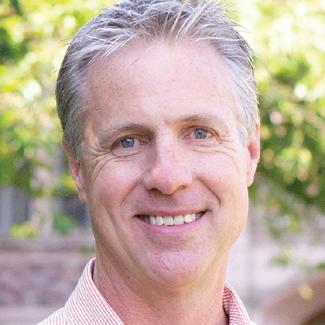
design “escape rooms” that will help people understand misinformation. Escape rooms, in which people work in groups to solve puzzles in order to “escape,” have popped up across the country in recent years, and many libraries have adopted them as activities for patrons. In the misinformation-themed escape rooms, which will begin online due to the COVID-19 pandemic, people will solve puzzles that help them understand things such as doctored photos or deepfake videos, but it won’t feel like school.
ers Chris Jowaisas and Stacey Wedlake are studying how well the program’s design and implementation meet users’ needs
Assistant Professor Jaime Snyder and MSIM alum Ari Pollack received $159,000 from the Kidney Precision Medicine Project’s Glue Grant program Their project explores how image-based kidney biopsies can provide information to support individuals with kidney
“The great thing about the Gates grant is that it allows us and the school to have the flexibility to go where we think the most impact can be,” Coward said. “It has allowed us to become much more responsive as we partner with libraries.”
For example, TASCHA is helping libraries confront the proliferation of misinformation online. In one project, it is working with libraries to
disease and help them engage in shared decision making
Professor Batya Friedman and colleagues with the Tech Policy Lab received a $300,000 gift from the Omidyar Network to support a new initiative on food resilience in the time of COVID-19 The research team includes Ph D students Stephanie Ballard, Elias Greendorfer and Nick Logler and Associate Professor Dave Hendry
“We’re not marketing it as ‘learn about misinformation.’ It’s going to be a game,” Coward said. “But they’ll have an experience that they can then talk about within their group and with their families about what it felt like to be in this environment where misinformation was trying to prevent them from solving this puzzle for an hour.”
To design the escape room experience, Coward and iSchool Associate Professor Jin Ha Lee recruited iSchool undergraduate and master’s students, who collaborated with librarians in the field. Greater involvement from iSchool faculty and students has been another major
TASCHA, continued on Page 42

Assistant Professors
Alexis Hiniker and Jason Yip, along with colleagues in Human Centered Design & Engineering, were awarded a National Science Foundation RAPID grant totaling $124,000 in response to the COVID-19 pandemic Their research examines which technologies most benefit families and keep children engaged in learning
Chris Coward
ischool.uw.edu | 11
Alexis Hiniker

Pandemic shapes CIP’s first year
By Michael Grass
When the Center for an Informed Public (CIP) officially launched at a December 2019 kickoff event at the University of Washington, nobody knew just how much the world would change within months. Due to the COVID-19 pandemic, in-person events were either canceled or turned into webinars and other virtual events. Face-to-face collaborations migrated to Zoom.
Despite the disruptions, twists and turns that would come with launching a new multidisciplinary research center
Updates
Associate Professor Jin Ha
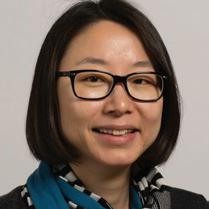
Lee and Assistant Professor Jason Yip received a $116,000 gift to develop a mental, social, and emotional wellness intervention program for e-sports players ages 13-24
The collaborative project with the Connected Learning Lab is funded by Pivotal Ventures through Connected Camps
in 2020, the CIP found itself well positioned in its first year of existence. The team behind the center — which spans the UW Information School, the School of Law and the Department of Human Centered Design & Engineering — drew significant local, regional, national and international attention to the CIP’s work. At the same time, the center quickly established a firm research footing in its mission “to resist strategic misinformation, promote an informed society, and strengthen democratic discourse.”
When the first cases of COVID-19 were confirmed in Washington state in Janu-
ary and it was clear the pandemic would have a huge impact on the United States, the CIP started an ambitious effort to collect coronavirus-related tweets to better understand how misinformation about COVID-19 was framed, shaped and amplified on social media. Since the start of the pandemic, the CIP has collected upward of 2 billion coronavirus-related tweets — more than 11 terabytes of data. In the spring, the CIP secured a $200,000 National Science Foundation rapid-response grant to study how a crisis situation like the pandemic can make the “collective sensemaking” process more
In addition to Mx WE
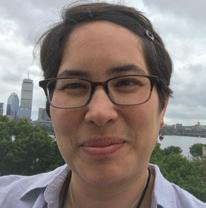
King (Page 6), several other doctoral students won fellowships Ph D candidate J. Elizabeth Mills won the 2020 Graduate School Presidential Dissertation Fellowship for her research, which explores the nature and role of reflection in public library storytime assessment; 2020 graduate Lassana Magassa, now an iSchool post-doctoral
scholar, won the Eugene Garfield Doctoral Dissertation Fellowship for his research on digital literacy among incarcerated youth; and Ph D candidate Prerna Juneja won a Social Science Research Council fellowship for her work auditing YouTube’s search and recommendation algorithms for conspiracy theories
Professors Jacob O. Wobbrock and Karen Fisher each received $60,000 Google Awards for Inclusion Research
RESEARCH | Spotlight on iSchool scholarship
UW President Ana Mari Cauce and Washington State University President Kirk Schulz announce a statewide partnership at the Center for an Informed Public launch event in December 2019.
Photo by Olivia Hagan
12 | iNews
Jin Ha Lee
J. Elizabeth Mills
vulnerable to misinformation. The UW Population Health Initiative gave CIP researchers $20,000 in grant funding to examine online discourse during the pandemic and design strategies to improve collective action and sensemaking within science and society.
“Crisis events — like global pandemics — are times of high uncertainty and anxiety. Under these conditions, we can be vulnerable to the spread of misinformation,” CIP co-founder and principal investigator Kate Starbird wrote in a May data memo examining the complementary roles of social and hyper-partisan media in spreading misinformation. “In recent years, that misinformation spread has often occurred through online platforms. And conspiracy theories are one type of misinformation that spreads online during crisis events.”
At the heart of the CIP’s research mission are these questions: “How do misinformation and disinformation flow through modern information systems? How does information translate into values, beliefs and action? How do researchers, educators, librarians and policymakers intervene in these misinformation and disinformation processes to foster a more informed society?”
Though a tumultuous 2020 is drawing to a close, these questions will remain at the forefront of the CIP’s research and educational mission as it heads into its second year.
MisinfoDay lessons reaching more classrooms
As with so many in-person events that had been planned for 2020, the pandemic forced the Center for an Informed Public (CIP) to shift gears with MisinfoDay, an event launched by the iSchool in 2019 to educate high school students, teachers and librarians about ways to be better information consumers and less likely to share misinformation. Instead of bringing students to the UW campus, the CIP hosted a virtual event in May geared for teachers and librarians interested in learning more about how to incorporate misinformation awareness into their classroom work.
Those important MisinfoDay lessons are poised to reach even more students thanks to the efforts of Shawn Lee, a teacher at Seattle’s Ballard High School, and Liz Crouse, ’19, a librarian at Nathan Hale High School who helped launch the first MisinfoDay as an iSchool MLIS student. In June, Lee hosted a virtual “MisinfoDay Jr.” for his AP U.S. history students.
“For the students who participated, they really saw it as the community service opportunity that it was: Educating their parents and community about good digital citizenship,” Lee said.
This summer, Lee and Crouse worked to launch a new group, Teachers for an Informed Public, which is now working with approximately 60 educators in Washington state to develop more K-12 “digital survival skills” lessons and misinformation awareness programming,
including hosting another MisinfoDay Jr. in October.
CIP contributes to Election Integrity Partnership
In July, the Center for an Informed Public joined forces with the Stanford Internet Observatory, the Atlantic Council’s Digital Forensics Lab and network analysis firm Graphika to create the Election Integrity Partnership. The EIP is a nonpartisan rapid-response analysis team that detects and mitigates the impact of attempts to prevent or deter people from voting or to delegitimize election results. This fall, the CIP team and UW students have been busy with Election Integrity Partnership research and analysis.
Highlights of the CIP’s contributions to the EIP’s work include:
○ Deep-dive analyses into how emerging social media narratives around mail-dumping incidents were framed, shaped, shared and amplified online. An analysis of a debunked ballotdumping incident in Sonoma County, California, found domestic accounts — including verified, blue-check Twitter accounts — were major spreaders of misinformation narratives.
○ Examining misinformation about absentee ballot request forms that had “circulated on at least seven social media platforms from mid-August to mid-September.”
○ Studying misleading ads that highlight a loophole in Google’s policies, including how “advertisers are using misleading clickbait headlines to put partisan political content in front of users.”
Wobbrock’s award is for an ability-based design mobile toolkit to enable accessible interactions with mobile devices; Fisher’s is for a project to develop culturally sensitive mobile technology and media literacy for Syrian girls
Ph D candidates
Meg Young, Mike Katell and former iSchool post-doc
Peaks Krafft released the Algorithmic Equity Toolkit, a set of resources for identifying, anticipating and questioning
public sector automated decision and surveillance technologies The toolkit is a collaboration with the ACLU of Washington and the Oxford Internet Institute
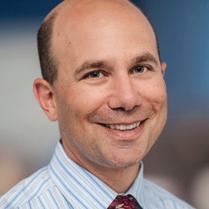
Wanda Pratt and MSIM
alum Ari Pollack had an article published by the Journal of the American Medical Association Their article, “Association of Health Record Visualizations With Physi-
cians’ Cognitive Load When Prioritizing Hospitalized Patients,” analyzes how data visualizations can assist physicians
Associate Professor Jin Ha Lee and Ph D candidate Marc Schmalz, with collaborators Stephen Keating and Jeewon Ha, won the Best Short Paper award at iConference 2020 Their paper explores the challenges inherent in preserving the history of video games and their development, including the many digital artifacts involved
New at CIP
ischool.uw.edu | 13
Ari Pollack
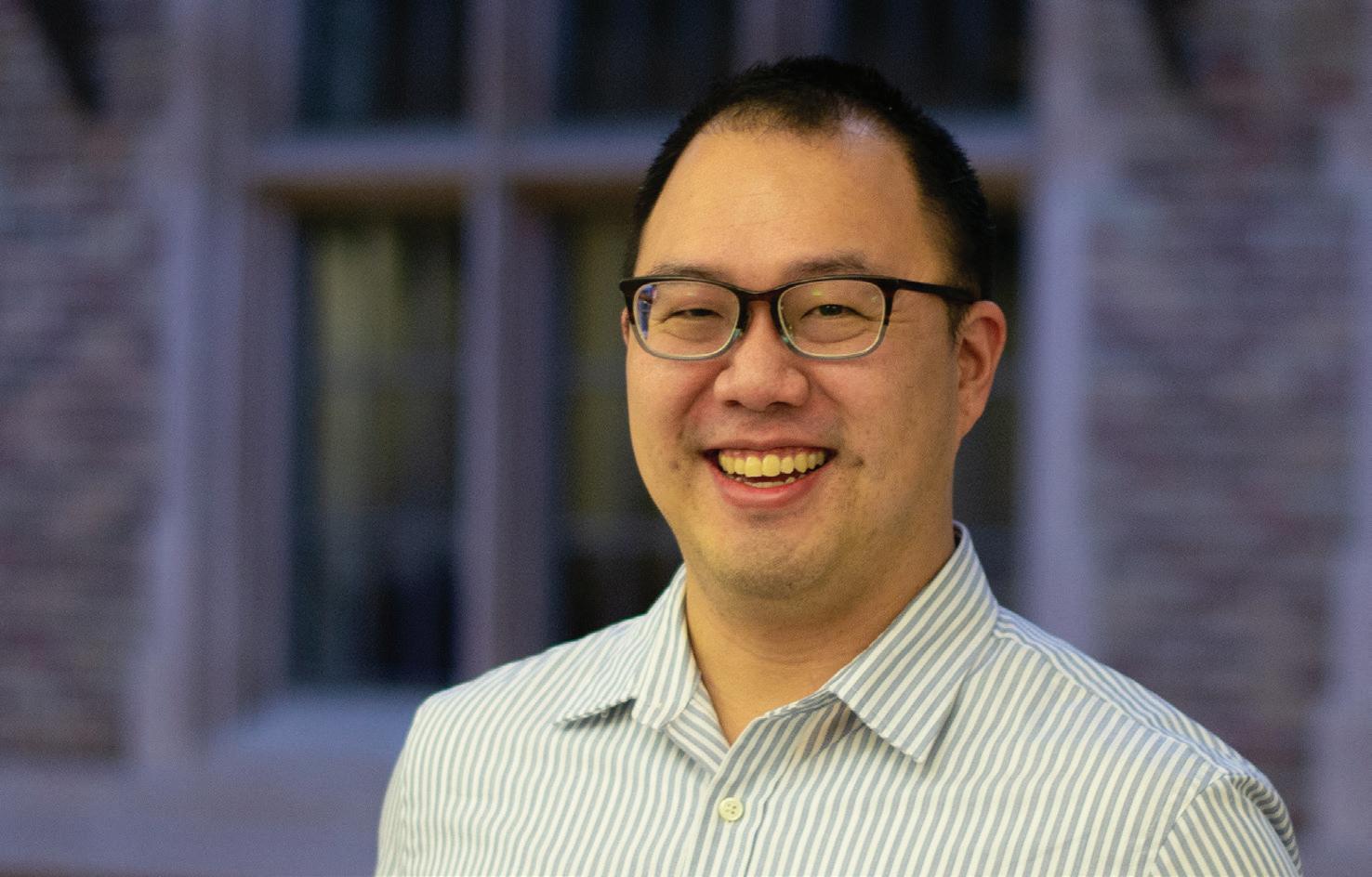
Better tools for youth doing ‘invisible work’
Jason Yip receives NSF grant to help teens and tweens who find crucial info for their families
By Doug Parry
As the world grows more complicated for teens and tweens, so do the chores they do with and for their families. Young people, especially those whose parents are immigrants or refugees, are increasingly tasked with finding crucial health and financial information online.
But the tools they’re using — search engines and technological platforms — are designed for adults. iSchool Assistant Professor Jason Yip has often wondered how the tools can better serve younger users. He recently was awarded a five-year CAREER Award from the National Science Foundation (NSF) to look into this “invisible work” and find out.
The NSF grant, worth $549,046 over five years, will allow Yip and fellow researchers to learn how youths search
for health and financial information for families with lower English literacy levels or lower socioeconomic status. They’ll work with youths to design alternative technologies and do field studies to evaluate prototypes. In the end, their research will inform how the next generation of designers approaches technology.
Yip said the idea for this study has percolated for several years. As a graduate student at the University of Maryland, he observed how middle school students used search engines for things such as video games, hobbies and education. During his post-doctoral research at the Joan Ganz Cooney Center at Sesame Workshop, he teamed with Carmen Gonzalez, an assistant professor in the UW Department of Communication, and Vikki Katz, an associate professor at Rutgers University, to study how a group of Latinx kids used technology to seek information for their families. They observed youths playing a key role in gathering information for their parents, especially information about health and finances.
“It was mind-blowing. They were doing things that I’d never seen done before,” said Yip, who has been at the UW iSchool since 2014. “I thought, ‘This is really interesting. Kids are searching for high-level, critical information.’”
The youths they observed weren’t interested in search tools designed for children, but they also frequently had trouble filtering their search results for reliable information with advanced tools such as Google.
“We live in a world where children and teens have to search for high-level information using high-level tools that are meant for adults,” Yip said. “We should be asking the question, ‘Why isn’t it designed better? Why isn’t it designed for an 11-year-old to search for critical information for their family?’”
Soon after Yip’s arrival to the UW iSchool, he continued his partnership with Gonzalez on a Google Faculty Research Award and University of Washington Royalty Research Fund to conduct fieldwork in the homes of 23 Latinx families, studying their online searching behaviors.
Gonzalez, who will partner with Yip on this CAREER project, said the research will help develop better tools to bridge the information gaps within families, especially among marginalized communities. The CAREER Award will allow Yip and his partners to further expand on research into how people in other marginalized communities, including first-generation college students at the UW, search for crucial health and financial information.
“This grant highlights the important, and often unnoticed, work that young people do with their families to help bridge access to information and resources,” she said.
She noted that Yip has established an ability to connect with kids, families and community members, and that skill will be invaluable on this project.
“Jason's commitment to equitable research and design is genuine — you can feel his passion for helping others in everything that he does,” she said.
If you or someone you know is interested in participating in Yip’s research project, contact him at jcyip@uw.edu.
14 | iNews RESEARCH | Spotlight on iSchool scholarship
New center focuses on accessible tech
The University of Washington recently announced the establishment of the Center for Research and Education on Accessible Technology and Experiences (CREATE) Fueled by a $2 5 million inaugural investment from Microsoft, UW CREATE is led by an interdisciplinary team whose mission is to make technology accessible and to make the world accessible through technology
iSchool Professor Jacob O Wobbrock is one of the co-directors of CREATE, along with Professor Jennifer Mankoff of the Paul G Allen School of Computer Science & Engineering
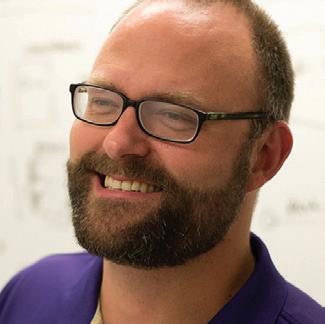
“The University of Washington has for many years led the field in cutting-edge accessible technology research and design,” Wobbrock said “Our faculty and students are incredibly motivated to tackle the hard problems of accessibility Now, with CREATE, we will be able to take on even bigger collaborative challenges in this space ”
Learn more at create.uw.edu.
iSchool partners in Ocean Nexus Center
The iSchool is among the University of Washington units partnering in the Nippon Foundation Ocean Nexus Center, an interdisciplinary research group announced recently
The Ocean Nexus Center, housed in UW’s EarthLab, will study changes, responses and solutions to societal issues that emerge in relation to the oceans and will bring uncompromised, critical voices to policy and public conversations The center was launched with $32 5 million in funding spread over 10 years
The iSchool lends its expertise to the center in the form of data for decision-making, known as D4D The work builds on previous D4D work from the Technology & Social Change research group in Myanmar and Costa Rica

“We will co-develop content and pedagogical approaches for D4D tools and resources for community organizations to support their communities to participate in decision-making processes on a more equal footing with scientists and policymakers,” TASCHA research scientist Chris Rothschild wrote
Learn more at earthlab.uw.edu.
UW joins public-interest technology network
The University of Washington has joined forces with schools across the country to be part of the Public Interest Technology University Network, or PIT-UN
PIT-UN is a collaboration among dozens of higher education institutions committed to building the field of public interest technology by training a new generation of civic-minded technologists and digitally fluent policy leaders
Through the development of curricula, research agendas and experiential learning programs in the public interest technology space, these universities are trying innovative tactics to produce graduates with multiple fluencies at the intersection of technology and policy
The University of Washington’s PIT-UN effort is led by the Information School, with collaboration from the School of Law, the Paul G Allen School of Computer Science & Engineering, and the Evans School of Public Policy & Governance
Learn more at pit-un.uw.edu.
Amy Ko on justice in CS education
The UW announced in September that it would launch the state’s first justice-focused computer science educator endorsement with a $1 million grant from the National Science Foundation (NSF). This project is an opportunity to transform how CS is taught in grades 6-12 throughout the country. We asked the grant’s principal investigator, iSchool Professor Amy Ko, about it:
Transforming education is a daunting task! Where do you plan to begin?
The focus of this grant really is on preparing computer science teachers. The hope is that long-term, if we prepare them well, then they will teach rich, inclusive, inspiring classes that frame computer science not just as a powerful tool to change the marketplace, but also as a tool of both justice and injustice.
Right now, most of the teacher professional development around computer science just teaches computer science basics. It doesn’t teach them how to teach computer science. It just says, ‘Go learn these technical skills,’ and then leaves it to teachers to figure out how to teach those skills effectively. And no programs teach computer science from a justice perspective, linking it to bias, discrimination, and oppression. Our program will do both of these things.
How will this work influence education beyond these districts?
Part of NSF’s endeavor is to intentionally bring together groups doing similar work in this space and they fund other grants that are just about organizing our community. I meet monthly with 80 other leaders around different states and learn from them and they learn from us.
This is one of roughly 30 grants that NSF gave out for similar efforts. So this really is a nationwide endeavor.
ischool.uw.edu | 15
Jacob Wobbrock
Chris Rothschild
Q&A
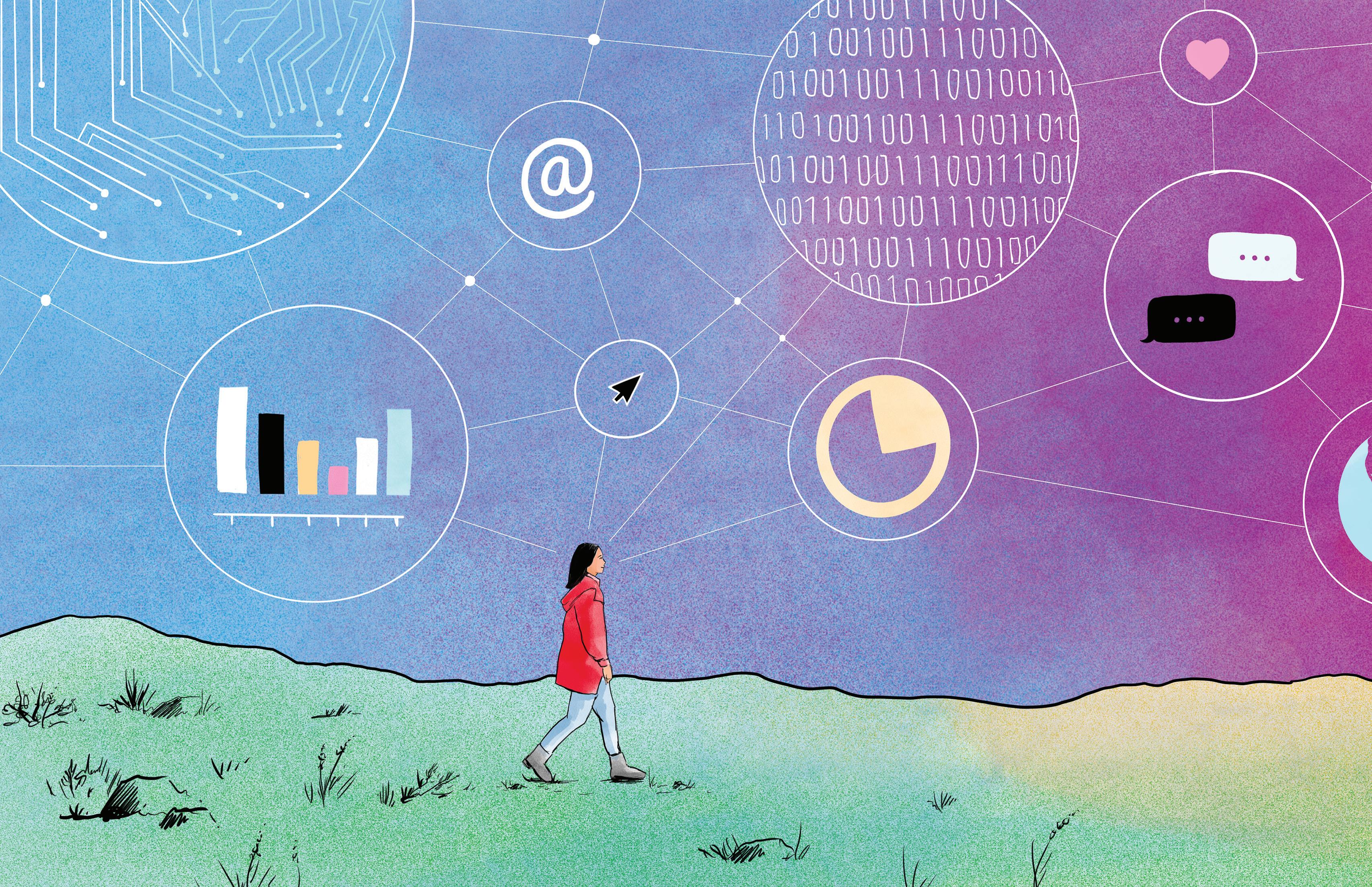
20/20 VISION
WENTY YEARS AGO THIS FALL, the University of Washington launched the Informatics program, an undergraduate degree with an unfamiliar name and a vision to study how people use technology to find and share information. Consider how forward-thinking Informatics was at the time. While computers and the internet have been disrupting the world for decades, Informatics came of age in the era of smartphones, the rise of social media and the dawn of big data. “As researchers, it's our job to be prescient,” said Amy J. Ko, the Informatics program chair. “Because we try to understand what is happening in the world, we can often see into the future. Sometimes it’s because we invented that future.”
STORY BY JIM DAVIS
16

TWO DECADES AFTER IT BEGAN, THE INFORMATICS PROGRAM IS STILL SEEING THE FUTURE
Informatics shifts the prism to look in a different light at how and why people use technology. Or, as Ko puts it, nobody buys a computer to own a computer. Technology is not the goal. It’s the means to an end. Why is the technology being designed and built? Who is the consumer or audience? Why are they using it? What good or ill could come from the technology?
Informatics would become a core piece of the UW’s Information School, which would be created a year later in 2001 out of the then nearly century-old librarianship program. Both were established under the leadership of Dean Emeritus Michael Eisenberg.
Associate Teaching Professor Scott Barker was the second hire by Eisenberg. Barker would go on to chair the Informatics program from 2007 to 2017.
They and others, including Professor and inaugural program chair Batya Friedman, set a course for the major and the school that continues today. They came up with ideas like the Capstone project, created names such as “iSchool,” which is now being used all over the world, and introduced “informatics,” a term that was used in Europe to describe computer science but wasn’t well known in the U.S.
“We played with all these words and somebody said informatics,” Barker said. “Most people said, ‘What the heck is informatics? Nobody knows what that is.’ And that was perfect because that means we can define it ourselves.”
Ko joined the iSchool in 2008 and has been program chair since 2017. She was a double major in computer science and psychology as an Oregon State University undergraduate, and she has long been interested in the intersection of
BY ALEXIA LOZANO
ischool.uw.edu | 17
ILLUSTRATIONS
information, technology and people who use technology.
“When I came to the Information School, here was this undergraduate program that was doing exactly the thing I’d wanted as an undergraduate myself,” Ko said.
Graduates from the Informatics program have gone on to work in software engineering, data science, web development and a host of other tech-related careers.
Early trailblazers
The first graduating class for Informatics in 2002 included Joe Goldberg, who felt like a trailblazer. He appreciated how the staff and faculty were receptive to students’ suggestions on improving the curriculum.
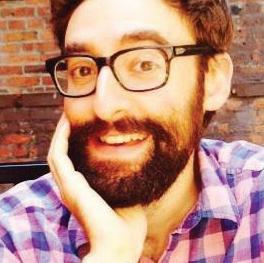
His first job out of college was at Amazon, then a much smaller company. He now works as an engineering manager at Convoy, a Seattle-based trucking software company. The Informatics program provided a mindset for Goldberg that no matter what he creates — software, a presentation, a paper — his focus needs to be the end user.
“You have to keep the audience in mind,” Goldberg said. “You have to build it for their needs. What information are you imparting to them? What tasks are they going to do with this software or this app? If you don't nail that first, you're going to waste everybody's time.”
That’s been an important perspective in the buildbuild-build, move-fast-and-break-things culture of the tech world. “I was talking with a user researcher at Convoy and I could see this relief on his face,” Goldberg said. “He said something to the effect of, ‘Oh, I see you're speaking my language. You understand what I do and the importance of what I do.’ I could tell that he knew that he had an ally, whereas usually he's fighting to get user research done.”

Christopher Lam was attracted to the interdisciplinary nature of Informatics. He graduated from the program in 2010 and went to work right out of college, first at Boeing and later at Amazon. “It was such a good mix of everything,” Lam said. “The fact that we had to take business courses, design courses and programming courses is such a good foundation. It made me realize, ‘Wow, this is one of the most balanced majors at UW.’”
Lam, who lives in San Francisco, currently works for PathStream, a startup that offers online digital-skills training from technology companies that’s often paired with university and college programs.
“Informatics has really set me up for success,” Lam said. “Especially working at startups where you have to wear multiple hats and do a bit of everything.”
The variety in the program is also what attracted Valentina Ferrari, ’11. Taking a range of classes in information science, software development and user experience design

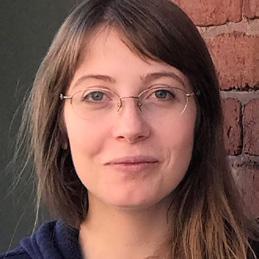
prepared her to work as a UX designer while she completed a master’s in Human-Centered Design & Engineering. After stops at Blink UX and Adobe, she’s now a senior UX designer at Amazon. “The biggest learning opportunity for me in the Informatics program was being able to work on projects with classmates with different specializations, very much as I would working in ‘the real world,’” she said.
Software engineer Ansel Santosa came to the UW specifically for the Informatics program. Santosa graduated in 2013, part of the first Informatics graduating class to reach 100 students. He grew up in Minneapolis, and as a
18 | iNews
Joe Goldberg
Christopher Lam
Valentina Ferrari

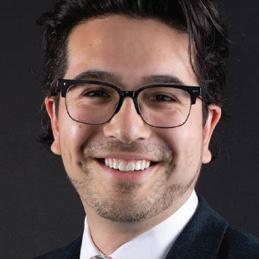
high school student, he did freelance website development for businesses. He saw the big picture of why people use and need technology.
“It took that holistic view, right?” Santosa said of the Informatics program. “It's an interdisciplinary major that takes learning from psychology and design and engineering and all these other places and puts it together into this broad understanding of what a product really is and how to make it effectively.”
The day after graduation, Santosa had a job at ExtraHop, a fast-growing IT network cybersecurity company. Santosa now works at Pioneer Square Labs, a startup
FACTS & FIGURES
Program growth
Gender diversity
ischool.uw.edu | 19
Ansel Santosa
Number of Informatics degrees awarded 2010-11 2011-12 2012-13 2013-14 2014-15 2015-16 2016-17 2017-18 2018-19 2019-20
Number of women in Informatics 2011-12 2012-13 2013-14 2014-15 2015-16 2016-17 2017-18 2018-19 2019-20 26.6% 27.0% 29.2% 31.4% 34.9% 38.9% 41.7% 39.1% 40.0% 67 105 100 122 138 184 206 78 247 211 49 58 73 87 129 186 209 200 182
studio and venture fund that creates tech companies.
Many of his instructors were guest faculty working full-time jobs in industry. The program also emphasized a collaborative approach that’s similar to the workplace.
“When I looked at myself compared to other junior people at similar jobs at the same company, I felt like I was better prepared for joining the workforce because I had trained under people that were already in that workforce,” Santosa said. “I was already used to working with teammates because I trained in collaborative, project-based classes.”
Evolving program
Sitting in a large lecture room at Mary Gates Hall in 2014, Morya Breland realized just how popular the Informatics program was becoming. He met a counselor when
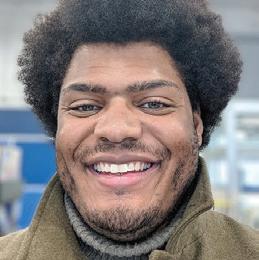 Morya Breland
Morya Breland
he first entered the UW and told her he expected to enroll in the Computer Science & Engineering program.
“She was like, ‘That's great. That sounds good. There are also other programs around that. Have you ever heard of Informatics?’” Breland recalled.
“That's the first time I'd ever even heard that word, much less what that word meant.”
Like many students, Breland struggled to adjust to college life and found that some of his major options were no longer on the table. He started to learn more about Informatics program and became intrigued. The problem was that by 2014, the number of spots for Intellectual Foundations for Informatics, or INFO 200, a required introductory course, was limited.

20 | iNews
He was among more than 50 students waiting for a spot to open. Miraculously, one did. It turned out well for him. Breland graduated in 2016 and has worked at Microsoft as a support escalation engineer mainly on SharePoint, a browser-document management program.
Breland appreciated learning from instructors and professors who had real-world experience. He also welcomed the interdisciplinary approach to Informatics such as the required philosophy course, INFO 450 — Information, Ethics and Policy.
“It's so important, especially now, to focus on ethics,” Breland said. “Just because you can do something doesn't mean you should do something.”
Jessalyn Cheng graduated in 2015 and now works for trading card company Pokemon as a technical project manager. Like Breland, she noticed that competition just to get into the program was ratcheting up when she was in school and has become even tougher since then.

She’s seen that same evolution in the job market. Her first job out of college was working for AT&T in the Seattle area. Applying for jobs, Cheng found that many employers seemed unaware of the program. When she went looking for a new job, Cheng found that many more employers were familiar with Informatics than just a few years earlier.
“I have peers that are in Microsoft, Google, Facebook,” Cheng said. “If I were to bring my background up to a company, they would tell me, ‘Oh yeah, we have Joe from INFO, too.’ OK, well there's my community.”
That’s one of the strengths of the program, associate teaching professor Barker said. Thousands of people have graduated from the program and have gone on to successful careers in the industry.
“What makes it work is that the best people to sell our program are our own students,” Barker said. “When they are successful, then the companies come back (to recruit on campus). They even send our own students back to recruit more of our students. It just builds on itself.”
Vital role
The Informatics program has capped admissions for several years. The program aims for 280 graduates each year. Demand is far greater than that. Enrollment is capped at 900 for the required INFO 200 course. Every year, the iSchool turns away hundreds of students who want to take that introductory class.
Barker wishes the program could accept more students, but he said it’s a matter of teaching resources and available classroom space. “We have all these smart kids,” he said. “We look at the applications, we get great applications. There's so many of them that are so strong.”
The Informatics program has expanded prudently over the last two decades. For the past several years, admission was capped at 210 students per graduating class until
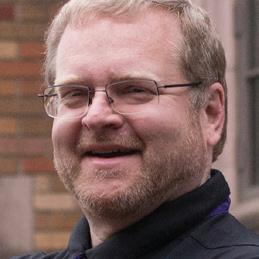
Scott Barker
increasing to 280 for this school year.
“We have had small incremental growth over the years and we'll be doing more,” Barker said.
Faculty spend many long hours reviewing applications, looking to bring in a strong mix in each class, program chair Ko said. For the 2019-20 academic year, 40 percent of the students were women, 64 percent were Washington residents and 24 percent were pursuing the first bachelor’s degree in their respective families.
Many students enter Informatics looking to work in the tech world. Ko would like for those students to put less emphasis on technology and more emphasis on social
“I have peers that are in Microsoft, Google, Facebook. If I were to bring my background up to a company, they would tell me, ‘Oh yeah, we have Joe from INFO, too.’ OK, well there's my community.”

sciences.
“It's the pond in which we swim, right?” Ko said. “What they are told to value by every signal in society is get a job, make money, ship products. Those aren't inherently bad things, but when we do those things, without thinking about all of the other aspects of civilization and society and human values, bad things can happen.”
She sees a vital role for Informatics graduates. A computer science graduate may be great at designing and building new technology, but may not see how the system will be used or its consequences. A social science graduate may see those repercussions, but may not know the technical language or limitations of technology.
Informatics graduates should be the translators “between experts in people and experts in technology,” Ko said.
“I think that's a really important gap that our graduates can serve and really do when we see them graduate and go off into companies and not-for-profits,” Ko said. “That's the role that they play. They're the ones that bridge all of those disciplines.”
ischool.uw.edu | 21
Jessalyn Cheng
Amy Ko
iSCHOOL DISTINGUISHED ALUMNI AWARD

Universities expect graduate students to engage in scholarly research. Undergraduates, not so much. Jill McKinstry, champion of rigorous undergraduate learning, set out to change that on the University of Washington campus. “Undergraduates were not often getting those opportunities to do original research and contribute to the world of knowledge,” says the 2020 iSchool Distinguished Alumna, director of Odegaard Undergraduate Library for 17 years.
22 | iNews
Inretirement,JillMcKinstryledtheeffort toaddasafepathwayintoMountBakerPark.
McK aar ins d L try i ’ br s inn nf arywi ov o atio ll ec r year h ns as d s t o at t o co ir h m ect e U e or ofOdeg fessio W andinherpro
STORY BY MARY LYNN LYKE MAIN PHOTO BY DOUG PARRY
Jill
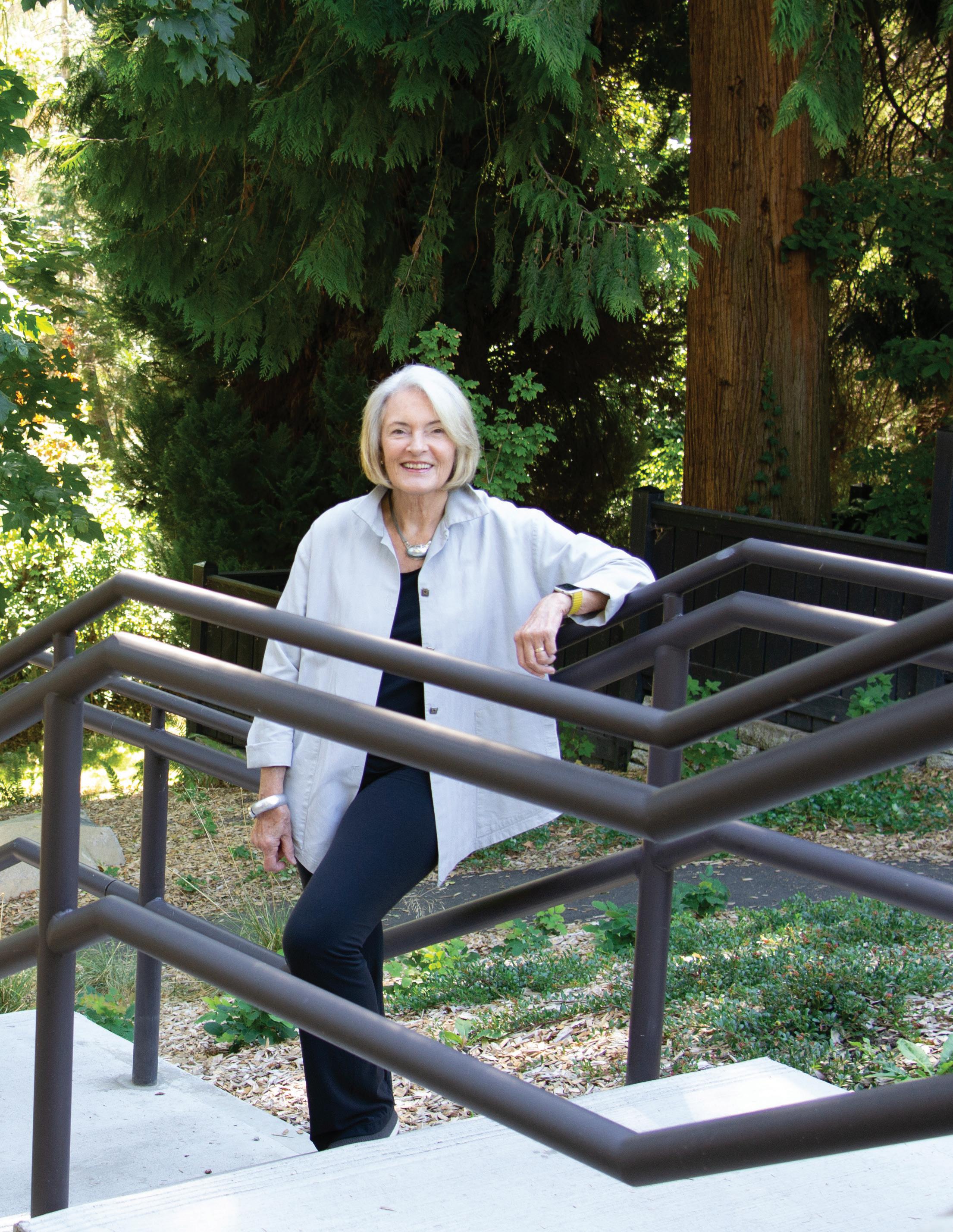
ischool.uw.edu | 23
She has been visionary, restless, relentless, always looking for new and effective ways of reaching out to undergraduate students.
JOHN HOLMES, EXPOSITORY WRITING PROGRAM LIBRARIAN IN THE ODEGAARD WRITING AND RESEARCH CENTER
Working closely with partners over the years, the tenacious library leader helped push through such innovations as writing and research tutors for undergraduates, 24-hour undergraduate library hours and lectures exposing undergraduates to cutting-edge faculty research methods. “Jill gets really excited about good ideas and she’s willing to put in the work to make them happen,” says her collaborator Janice DeCosmo, associate vice provost for undergraduate research and associate dean for undergraduate academic affairs.
DeCosmo and McKinstry were inspired to action by the 1998 Boyer Report, which focused on reinventing undergraduate education through inquiry and research. “This was really the impetus for transforming undergraduate education across the country at large research universities,” says McKinstry. Among their successful collaborations were new library research awards for UW undergraduates, introduced in 2004.
“Faculty love it when their students win these awards,” says McKinstry. She herself confesses to tearing up when she hears today’s UW undergraduates present their research on campus. Some, she points out, now present at national conferences. “That would have been unheard of pre-1990s.”
So would the number of undergrads now conducting scholarly research. Data show undergraduate research at the UW has increased more than tenfold over two decades. “Undergraduates have really embraced it,” says McKinstry (’87, Master of Librarianship).
Colleagues describe the librarian emeritus as a super-focused, equity-driven, get-it-done leader who is both low-key and high-energy. She’s a master of networking and persuasion. “She has been visionary, rest-
less, relentless, always looking for new and effective ways of reaching out to undergraduate students,” says John Holmes, expository writing program librarian in the Odegaard Writing and Research Center. “Her marketing skills brought a new dimension to the traditional, staid library profile and pushed us all to the top of our game to keep up with her.”
“The fabulous Jill McKinstry” is the term Betsy Wilson, vice provost and dean of UW Libraries, uses to describe her. “Jill is a force of nature, completely dedicated to the power of education and libraries to transform individual lives and societies,” says Wilson, who created a position for McKinstry in 2006 as her special assistant in undergraduate education and programs.
The position put McKinstry at the table whenever key discussions about undergraduates took place across campus. “Jill saw she could make a big impact on undergraduate students,” says Wilson, “especially those who came from not as privileged a background as she came from.”
Helping others is hard-wired in McKinstry. In 2001, she and her husband created the Jill and Joseph McKinstry Libraries Endowed Fellowship, providing scholarships to underrepresented students seeking an

24 | iNews
Jill McKinstry and her husband, Joseph, have provided support for underrepresented MLIS students and the Native North American Indigenous Knowledge program.
At right, Jill McKinstry points to Odegaard Library, where she served as director for 17 years and led the transformation of both the building and the library’s approach to serving undergraduates.
iSchool MLIS. UW Libraries, working in partnership, provides the fellows with paid work experience. Most have ended up working in academic libraries, helping to diversify the field, says McKinstry. “You hope that your librarians reflect the population and cultural diversity that they are serving.”
The philanthropic couple has also provided financial support for faculty at the iSchool’s unique Native North American Indigenous Knowledge research program, which explores the intersection of information, technology, and Native culture and knowledge systems. This year, the McKinstrys launched an endowed Ph.D. fellowship for the program. They’ve also started a special fund that helps support the University of Washington Press’s publication of books on indigenous topics. The most recent release is Unsettling Native Art Histories on the Northwest Coast
“You cannot be from this region and not appreciate the need for preserving the language and the culture and the ways of Native Americans,” she says. “We’re on their land and this needs to be talked about and written about.”
McKinstry, who was awarded a David B. Thorud Leadership Award in 2009, admits she’s a stickler for finishing what she starts. “Diabolically methodical,” her husband once described her. That may help explain how she accomplished so much in her 27 years on the UW campus, including overseeing a dramatic, whirlwind renovation of Odegaard.
“Jill was absolutely the key figure in leading the Odegaard renovation,” says Bob Stacey, dean of Arts and Sciences. He co-chaired the renovation committee with her. “Jill led the visioning process, hiring the Miller Hull Partnership design firm and working closely with them throughout the project. She was also the key figure in building administrative support for the project, first within the committee that oversaw the project and then within the University Libraries and in the provost’s office.”
The 2012-13 remodel transformed Odegaard from a dark, drab study hall — a “concrete monolith,” McKinstry describes it — into a friendly, vibrant research and

‘Diabolically methodical,’ her husband once described her. That may help explain how she accomplished so much in her 27 years on the UW campus, including overseeing a dramatic, whirlwind renovation of Odegaard.
ischool.uw.edu | 25

support hub with a massive new undulating skylight, built using 80 percent repurposed stair railings. The reimagined library introduced the UW’s first active classrooms for dynamic hands-on learning and student interaction; technology and learning studios; and the Writing and Research Center. A newly refurbished 100-seat room accommodates Research Exposed!, the class co-founded by McKinstry and DeCosmo that introduces undergraduates to faculty research methods in different disciplines.
McKinstry and the team accomplished the entire $16.6 million, state-funded Odegaard remodel — a renovation that would win prestigious architectural awards — in record time. “What is normally a 44-month process was accomplished in 22 months,” she says. “We worked night and day.”
McKinstry plays as hard as she works, friends say. She and her husband, who founded the Joseph McKinstry Construction Company in 1977, like to sail, kayak, bicycle, camp, hike, and take off on grand adventures. They have paddled as far as the remote Haida Gwaii islands in British Columbia. They have bicycled in Chile and Myanmar, Greece and New Zealand. Until the coronavirus outbreak, they both played in a local
orchestra: Jill on cello, Joe on bass.
Jill McKinstry grew up in Queen Anne and Magnolia, playing tennis and skiing with her siblings and father, a Seattle attorney, and mother, a southern belle from Georgia. Even at Queen Anne High School, McKinstry was a super-organizer, working on various committees and revving up rallies as a cheerleader. “She was part of that pep squad esprit de corps,” says retired UW librarian Marcie Stone, a high-school classmate who nominated McKinstry for the iSchool Distinguished Alumni award. “Even as a teen, she was as competent, intelligent, capable, accomplished, warm and welcoming as she is now.”
McKinstry is an avid reader who helped develop the UW’s Common Book program for incoming freshmen. (This year, they are all reading How to Be an Anti-Racist.) As a child, she loved going to the local library. “I’d ride my bike there, stop and pick up a couple candy bars, then go home and read all day,” she says. “But I never envisioned being a librarian.”
That vision didn’t take form until well into her academic career. She began her student years at the UW, earning a B.A. and M.A. in Spanish literature and linguistics. “Linguistics and language are like math and
26 | iNews
Jill McKinstry at Odegaard Library. The whirlwind remodel she led turned the library into a vibrant research space.
Asachild,shelovedgoingtothelocallibrary.“I’dridemybike there,stopandpickupacouplecandybars,thengohomeand readallday,”shesays.“ButIneverenvisionedbeingalibrarian.”
librarianship in a way. It all fits together in a system. Something in my brain likes that,” she says.
Studies abroad took her to Mexico and Spain, where she learned first-hand about the underground theater flourishing during Franco’s oppressive regime. After taking time off to raise two children, help with the family business, and teach middle-school Spanish, she started studying classical Greek for fun. When she discovered that many people studying classics turn to librarianship, the light went on. “I said, ‘Aha. That’s it.’ ”
She didn’t even have a computer when she started at the iSchool — then the Graduate School of Library and Information Science — in 1985. By the time she left, she had mastered computing and the binary system, along with crucial librarianship skills. “The iSchool taught us the importance of veracity, checking your resources and challenging assumptions — some very good things that have lasted me a long time,” says McKinstry, who would become a recognized leader in national library associations, highly regarded for her publications and lectures.
After graduating and doing her fieldwork at the Library of Congress, McKinstry was offered a part-time, temporary position at UW’s Fisheries-Oceanography library. “What did I know about it? Absolutely nothing,” she says. “But I had a wonderful boss who mentored me and taught me so much about the scientific language and how to find the resources.”
At that time, faculty visited the FisheriesOceanography library frequently to access printed scientific journals — serial publications had yet to go online. In later years, McKinstry would help with the UW campus libraries’ transition to increased access to online resources. She worked as assistant to the director of University Libraries and as head of the Interface Working Group, working with UW IT to develop the public interfaces to the libraries’ online catalog and databases.
In 1997, she was hired at Odegaard, beginning the long directorship that ended with her retirement in 2014. Over her years at the undergraduate library, she took many young people under her wing, encouraging them, showing them the ropes and also showing up when they needed a personal assist. “She is an incredibly compassionate, thoughtful, and generous human being,” says Heather Gillanders, one of McKinstry’s mentees, who
is now working as an academic librarian at Tacoma Community College. McKinstry helped Gillanders get into the iSchool MLIS program in 2009 and “made a consistent effort to help develop my confidence and knowledge.”
Those McKinstry mentored say they still feel her influence six years after her retirement. “She’s one of those people who leads through deeds, not words. I really respect that,” says 2005 iSchool MLIS graduate Amanda Hornby, who heads the four-year-old Undergraduate Student Success Team at Odegaard. “I feel like it’s her legacy that allowed my team to be created.”
Despite immense work pressures, McKinstry has always found time to volunteer. She served six years on the University Book Store board at a time when the web was turning the publishing world upside-down. With her family, she has volunteered with Habitat for Humanity, building houses for people in need in low-income neighborhoods, on reservations, and internationally, in Hungary, Mexico and South Africa.
She remains a long-time, active member of the iSchool’s MLIS Advisory Board and, upon retiring, took a term as president of the University of Washington Retirement Association board. She is the treasurer of the Grandmothers Against Gun Violence Foundation, formed after the 2012 shootings at Sandy Hook Elementary School in Newtown, Connecticut. She also helped organize a group to work with Seattle’s Department of Neighborhoods on creating a safe entry into a beloved Mount Baker park. “It was quite a process. Everything I learned at the UW, working with people and respecting process, helped me figure out how to move ahead,” she says.
While McKinstry quietly declares herself “humbled” at being chosen for the Distinguished Alumni award, others say it was only a matter of time. “Jill is a national leader in thinking about the changing role of librarians and the changing function of undergraduate libraries,” says Wilson. “She has had a huge impact on changing the shape and the nature of the profession. She truly is fabulous.”
ischool.uw.edu | 27
The download
Eleven iSchoolers among this year’s Husky 100
Ten iSchool students and one recent alum were among the 2020 Husky 100, which honors those making the most of their UW experience, making an impact inside and outside the classroom
They are: (top row, from left) Simran Bhatia, Sam Buechler, Eddy Huang, Jenny Liang, Varun Pradeep Panicker; (bottom row) Shruti Rajagopalan, Conrrado Saldivar (next page), Israel Sixto-Sanchez, Kelli Yakabu, Savanna Yee, and Informatics alum Saralyn Santos, who made the list as an HCDE master’s student
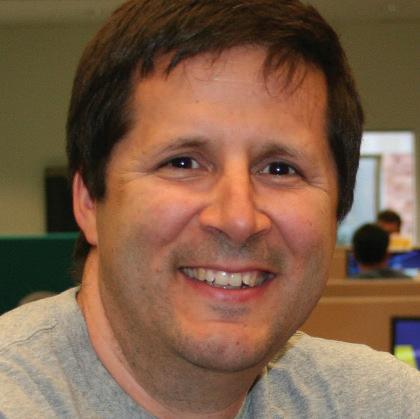
Gomez sets a good example
Instructors across the UW are following Associate Professor Ricardo Gomez’s example The UW’s Continuum College put together the “Seven Principles for Effective Teaching,” with each drawing from his classes
Rus Hathaway, a senior instructional designer, created the toolkit to support instructors who had little or no experience teaching remotely . “One of the principles of good instructional practice is to treat students like people . . . And I saw that Ricardo was interested in his students as people,” Hathaway said . Gomez had experience teaching courses from the MLIS program online and working to optimize classes for remote learners .
Watch the videos at ischool. uw.edu/teaching-toolkit
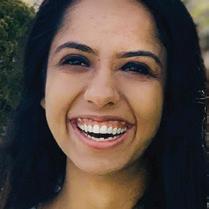
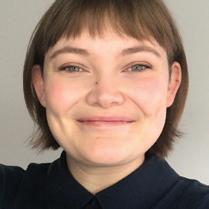
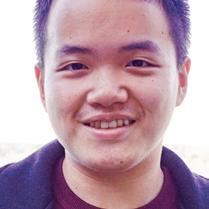
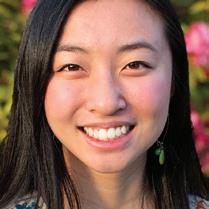
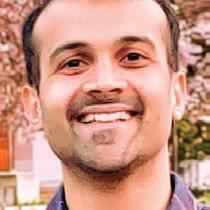
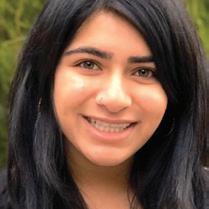
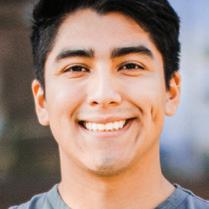
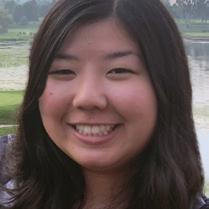
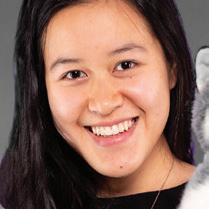
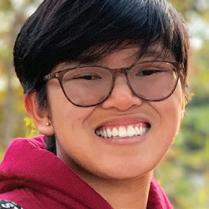
New books
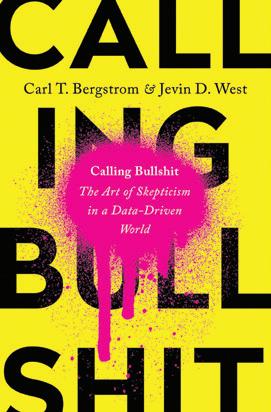
‘Calling Bullshit: The Art of Skepticism in a Data-Driven World,’ Carl Bergstrom and Jevin West
The duo behind the iSchool’s popular Calling Bullshit course have published a mass-market book that touches on many of the same subjects they’ve taught in class West, an iSchool associate professor, and Bergstrom, a biology professor, equip readers with tools to identify misinformation and call it out when they spot it While many people don’t feel qualified to challenge the avalanche of misleading information, the authors say you don’t need technical expertise to identify problems with data They examine the origins and definition of bullshit and explain concepts such as selection bias, muddled data visualizations, and the difference between correlation and causation Wired magazine hailed the book, writing: “Calling Bullshit is a straight-talking survival guide to the mean streets of a dying democracy and a global pandemic, and it emboldens you to actually do something about it ” Calling Bullshit was published by Penguin Random House
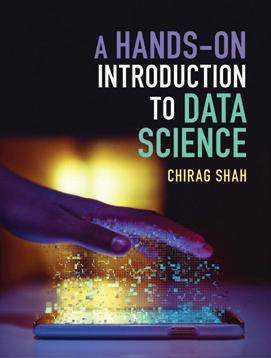
‘A Hands-on Introduction to Data Science,’ Chirag Shah
Associate Professor Chirag Shah’s new textbook brings data science down to earth to make it accessible to students With the rapid growth of technology over the past decade and its impact on our daily lives, Shah argues that data literacy is important for everyone to learn “Whether you are a history, psychology or business major, you need to know how to read and write Similarly, data literacy is one of those basic skills that everybody needs to have, whether or not they want to pursue a career in data science,” he explained Shah sees data science as an interdisciplinary field where many solutions to problems extend beyond statistical and computational modeling and require people from different fields and backgrounds to work together A Hands-on Introduction to Data Science was published by Cambridge University Press
28 | iNews
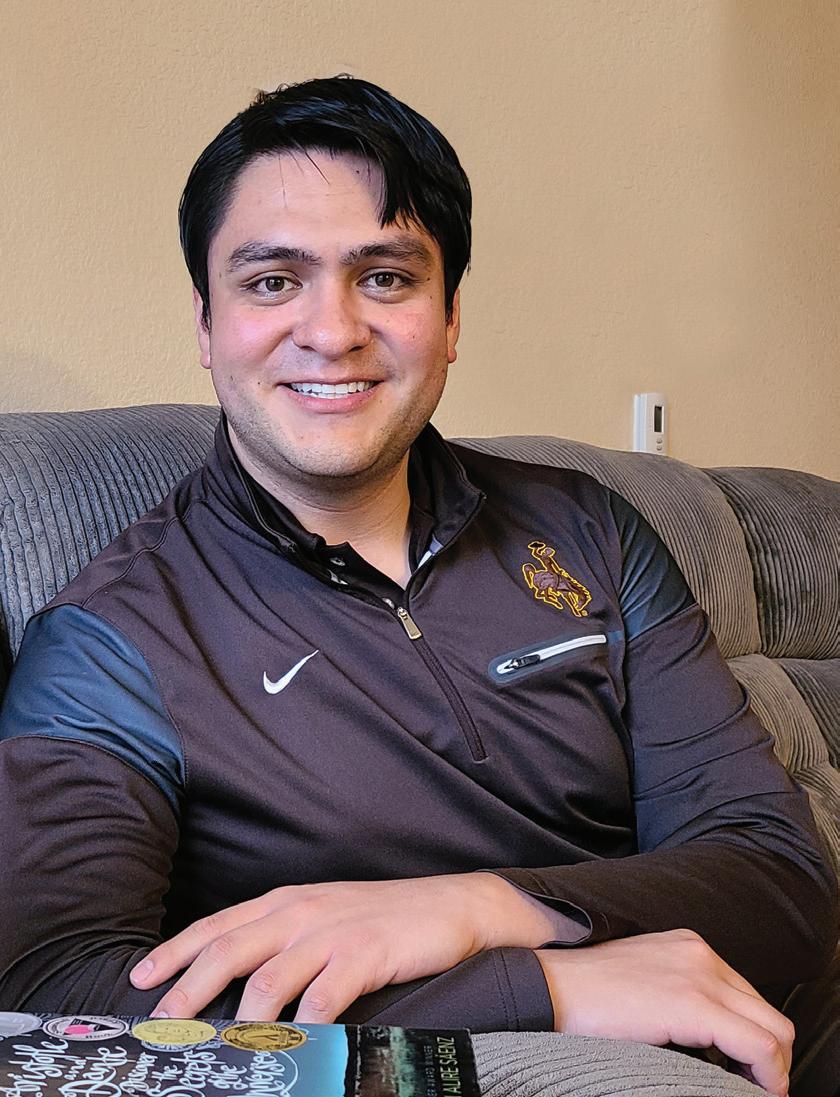
MLIS student named Wyoming’s outstanding librarian of the year
MLIS student Conrrado Saldivar was honored in September with Wyoming’s Outstanding Librarian of the Year award In announcing the award, the state library cited Saldivar’s contributions to COVID-19 relief efforts He partnered with a state coalition to produce face shields and masks using the library’s 3D printer, Cricut Maker and sewing machines “Saldivar single-handedly produced 120 face shield parts that went to several local medical centers” and organized a medical supplies donation drive, the state library noted
Save the date: Dr. Tressie McMillan Cottom
Join us for our annual Ed Mignon Distinguished Lecture with Dr Tressie McMillan Cottom, an award-winning author, researcher, educator and cultural critic Cottom’s work has been recognized nationally and internationally for the urgency and depth of her critical analysis of technology, higher education, class, race and gender She is the author of Lower Ed: The Troubling Rise of For-Profit Colleges in the New Economy and the co-host, along with Roxane Gay, of the popular podcast “Hear to Slay ” She was recently named a 2020 MacArthur Fellow
When and where: April 13, 2021; in Kane Hall if conditions permit; otherwise, online Admission: Free RSVP: ischool uw edu/cottom

Nic Weber selected as a 2020 Mover & Shaker
Assistant Professor Nic Weber was named one of Library Journal’s Movers & Shakers of 2020 The magazine cited his work as technical director of the Qualitative Data Repository, where he leads a team that builds open-source tools for scholarly research
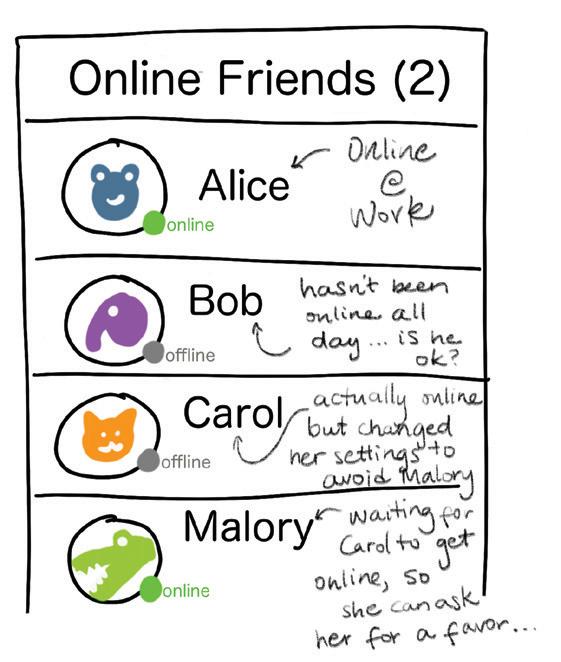
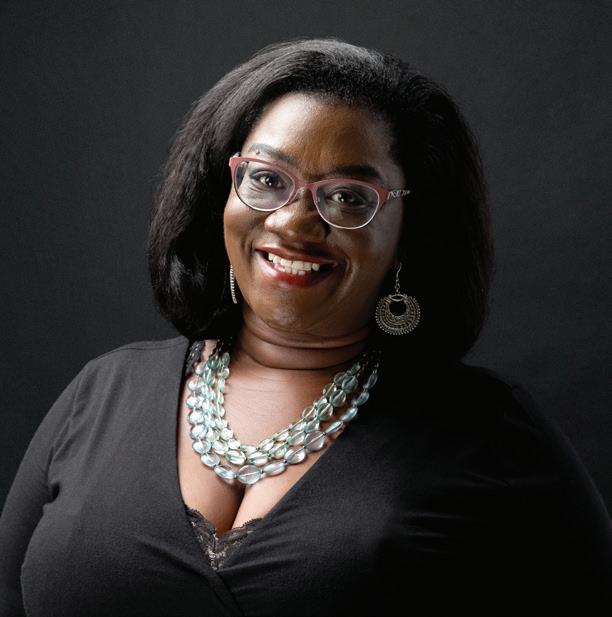
Do users connect the dots?
Some apps announce when a person is online using status indicators, usually a little dot their followers can see iSchool and Allen School of Computer Science & Engineering researchers surveyed smartphone users to see whether they know they’re sharing this information and whether status indicators change how they behave online The team found that many people misunderstand online status indicators, with about one-third unable to tell what they were revealing More than half reported logging on to an app just to check someone else’s status And 43% of participants discussed changing their settings or behavior because they were trying to avoid one specific person
“When people share information by posting or liking something, the user is in control of that broadcast,” said senior author Alexis Hiniker, an iSchool assistant professor “But online status indicators are sharing information without taking explicit direction from the user ”
Camille Cobb was the lead researcher as a postdoctoral scholar with the Allen School
ischool.uw.edu | 29
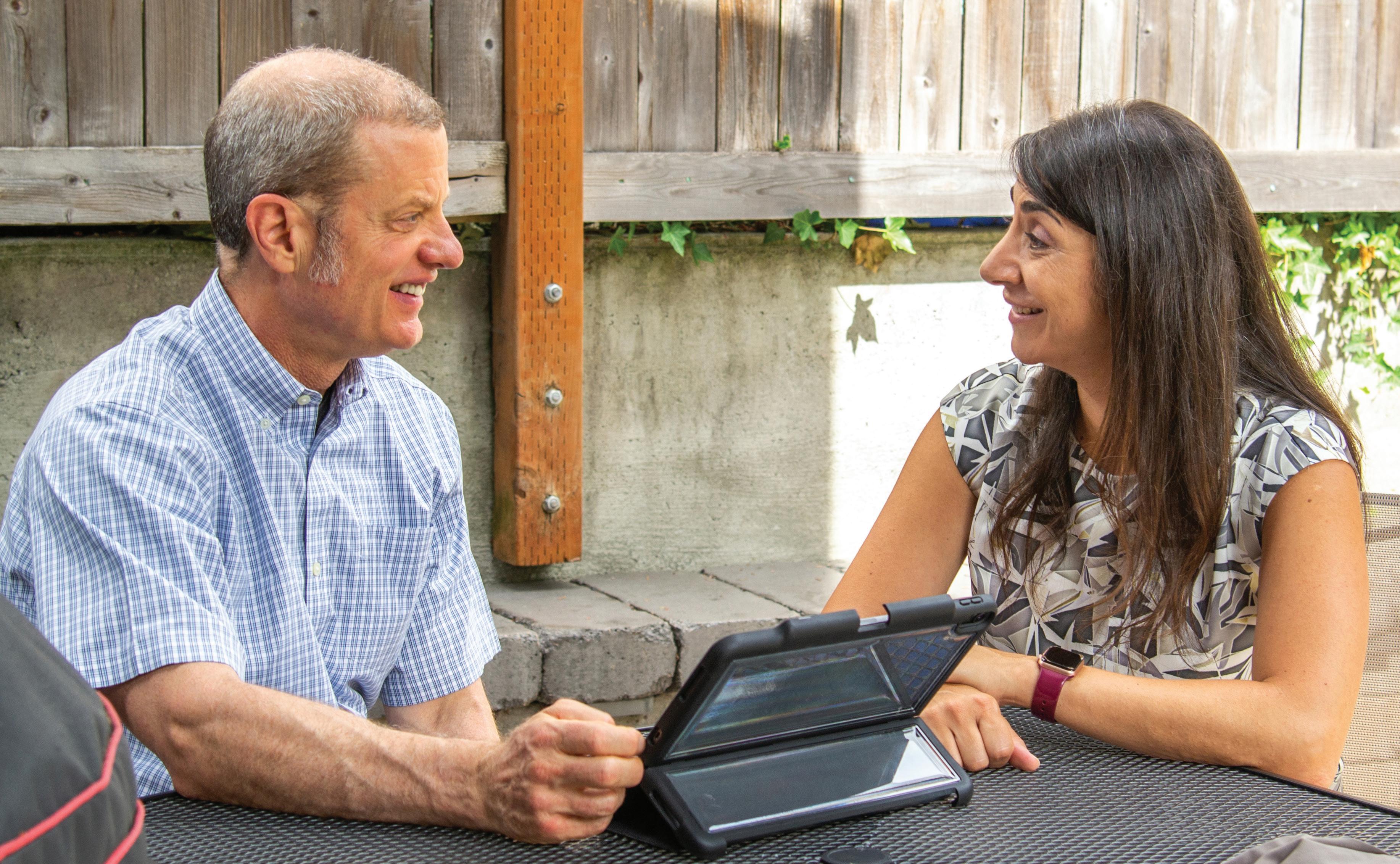
RIGHT TEAM FOR THE JOB
Together, Sean McGann and Hala Annabi have re-envisioned — and reinvigorated — the iSchool's MSIM program
IParry
t was 2015, and the timing was right. The iSchool’s Master of Science in Information Management program needed an infusion of energy, and Hala Annabi and Sean McGann were ready for a challenge.
Harry Bruce, then the iSchool dean, made them an offer they couldn’t pass up: come to Seattle and reinvigorate the MSIM program. For McGann, who was chair of the Computer Information Systems Department at Appalachian State University, it was a chance to come in as program chair and do the work that really excited him — teaching and developing programs. For Annabi, who was chair of the Management Information Systems Department at Ohio University, it was a chance to return home and rejoin the iSchool faculty as an associate professor after several years away. For both of them, it was a chance to live and work as a married couple in the same city rather than 300 miles apart.
Since their arrival five years ago, they have been the MSIM program’s dynamic duo, modernizing it and defining its niche as a program that produces data driven, socially conscious information leaders.
In the past five years, the program has reorganized its core courses and specializations and put them all on a set schedule; it’s added an Early-Career Accelerated track that can be completed in a year and shortened the Mid-Career MSIM; it’s added
30 | iNews
Story and photo by Doug
fully online tracks; it’s strengthened ties to local employers and brought alumni in to mentor students; and it’s added top-notch faculty to teach its growing cohorts.
“Sean and Hala have such incredible passion for the school and for this program. It’s contagious,” Dean Anind Dey said.
When they arrived, the program was attracting strong students and producing graduates who were in high demand in the job market, but it had difficulty serving students well enough during their time at the iSchool. Course scheduling made it difficult for some to complete their specializations.
McGann listened to feedback from students and alumni and developed a strategy to address it. He put classes on a reliable schedule and offered more of them in the evening so that Mid-Career students could attend. He led a revamp of the specializations, including the addition of a popular one in business intelligence, and changed the registration process to ensure that students could get the classes they needed.
“Sean created the roadmap and asked the difficult questions, and re-envisioned how we can calibrate our work to meet student demand, employer demands, faculty expertise and interest, and school values,” Annabi said.
McGann reoriented the program toward the direction the information management field was going, adding more of a business flavor and finding its sweet spot. As a result, the MSIM is attracting students who want to develop an awareness of both the organizational and technical sides of information management. ***
Alex Osuch, ’20, was looking for that blend when he applied to the MSIM program. He considered law and MBA programs, but opted for the Mid-Career MSIM because he found it more interesting and forward-looking.
“I think big information systems are going to have a social impact,” said Osuch, who now works at the cybersecurity firm Coalfire. “I wanted to know how these huge companies use these systems and how they work.”
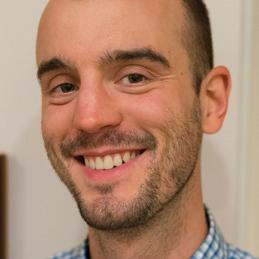
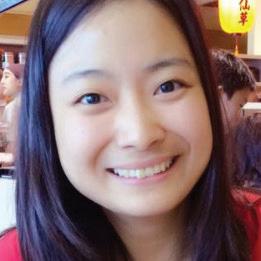
Before applying to the Early-Career MSIM track, Jenny Li, ’19, had worked for a couple years in marketing at Disneyland theme park and in product management at a startup in Beijing. Li said that after the chaotic atmosphere of a startup, the MSIM program gave her the structure and skillset she needed to succeed at a company like GoDaddy, where she now works as a product manager.
“I wasn’t technical at all, and the MSIM program helped me build out the technical skills,” she said. “It provided me the framework and some tools that I can use to navigate. My current role is very back-end focused and technical. Having that halfand-half balance really helped ground me for my job.”
Li and Osuch both found Annabi’s core class in strategic leadership particularly useful in understanding how information organizations work and how to succeed within them.
MSIM, continued on Page 42
MSIM goes online
The iSchool recently opened admission to its first fully online MSIM tracks.
PROGRAM TRACKS:
• Early-Career
• Early-Career Accelerated
• Mid-Career
SPECIALIZATIONS:
• Business Intelligence
• Data Science
ANNUAL START DATES:
• September
• January
• March
• June
Study on your schedule: Each course has about 1 hour per week of synchronous (real-time) sessions, in the early morning or evening. Otherwise, they’re asynchronous.
Now enrolling for: Spring 2021
Learn more:
msimonline.ischool.uw.edu.
ischool.uw.edu | 31
Alex Osuch
Jenny Li
By Michael Grass
When computer scientist Tanu Mitra saw a faculty job posting at the iSchool late last year, she was instantly drawn to it.
“This is the powerhouse,” Mitra said of the iSchool, where she recently started as an assistant professor with expertise in social computing, computer-supported cooperative work and online misinformation.
“What better place to be?” she said in a recent interview, pointing out that the UW’s Center for an Informed Public, where she was recently named a faculty member, was also a particular draw.
“We’re incredibly fortunate to have Tanu join the iSchool and the CIP, where her research on misinformation, conspiracy engagement, hate groups and crowdsourced news credibility is a perfect fit to our current work in the CIP,” said Jevin West, an iSchool associate professor who is serving as the CIP’s inaugural director.
At the iSchool, Mitra will lead the Social Computing research group, where her work will focus on studying and building large-scale social computing systems to understand how misinformation, disinformation and other problematic content are shared and amplified, as well as methods to counter that type of content.
Mitra recently relocated to Seattle from Virginia, where she was an assistant professor in Computer Science at Virginia Tech. She received her Ph.D. in computer science from Georgia Tech’s School of Interactive Computing and her master’s in computer science from Texas A&M University.
“I consider myself an unconventional computer scientist,” Mitra said, noting that unlike some in the field, she usually starts with questions that are rooted in psychology and sociology when she examines complex problems.
For researchers like Mitra who study how misinformation is shared and amplified online, the transformative events of 2020 — including the ongoing COVID-19 pandemic, racial justice protests and the U.S. elections — have reinforced the importance of understanding not only how people create,
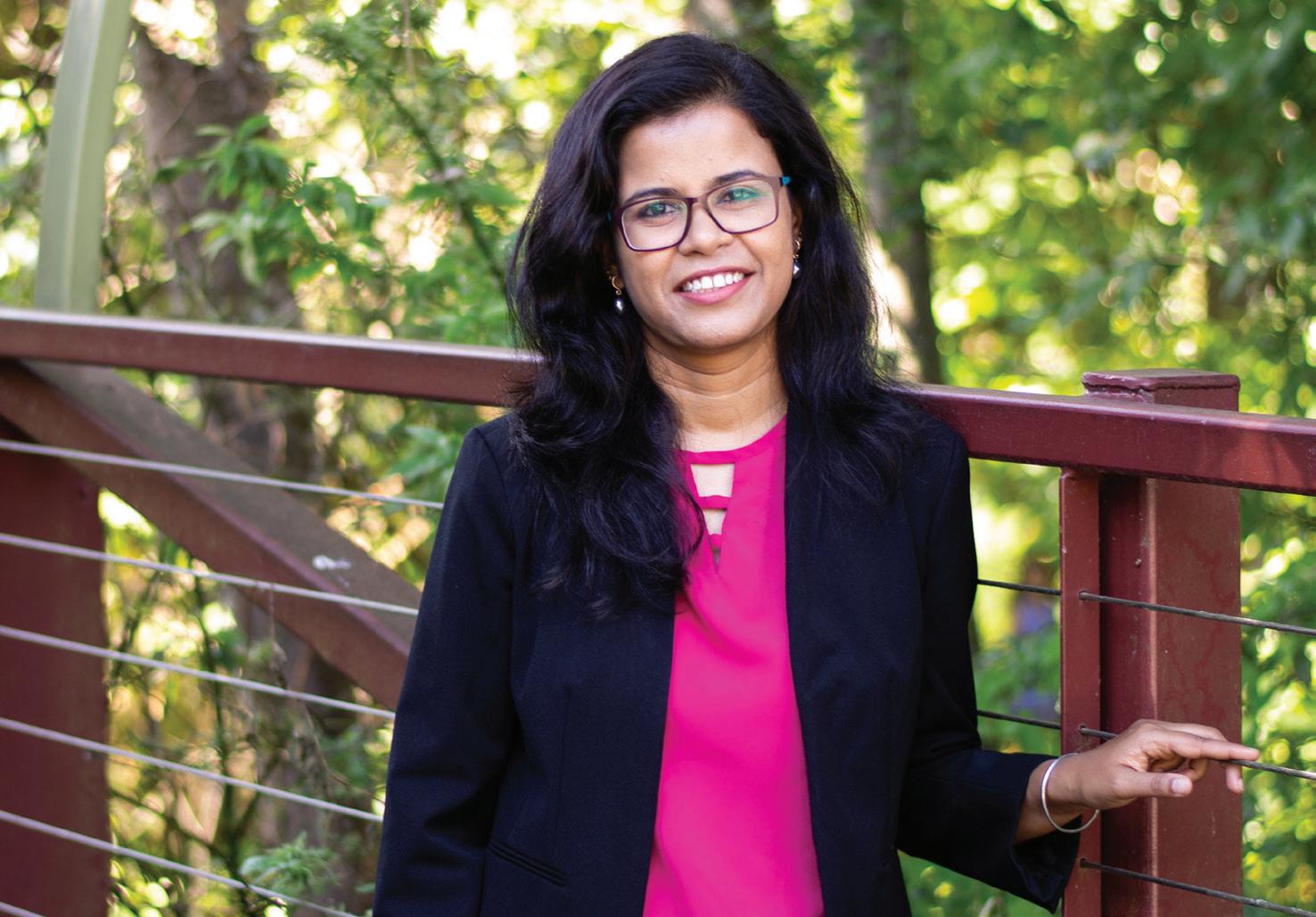
Outside the box
Assistant Professor Tanu Mitra brings an unconventional approach to the study of social computing and misinformation
consume and communicate information online, but also how they connect with others through social media and other information-sharing platforms.
Mitra’s recent research has involved studying how YouTube algorithms promote and recommend certain types of misinformation. According to a May 2020 paper published as part of the Conference on Computer-Supported Cooperative Work and Social Computing: “We find that demographics, such as gender, age, and geolocation do not have a significant effect on amplifying misinformation in returned search results for users with brand new accounts,” Mitra wrote along with two Virginia Tech Ph.D.
students she’s advised, Eslam Hussein and Prerna Juneja. “On the other hand, once a user develops a watch history, these attributes do affect the extent of misinformation recommended to them.” (Juneja is now at the UW iSchool.)
For researchers, auditing algorithms, especially for problematic content, is still fairly new, Mitra said. And more broadly, the ways algorithms influence what people see online remain largely mysterious to most information consumers, she said. There’s a great deal of work to be done to improve public understanding. “How do we work with AI systems that actually explain to regular people how they’re functioning?”
32 | iNews FACULTY | New at the iSchool
Pratt named dean for equity and inclusion
By Doug Parry
The iSchool has several ongoing diversity initiatives and is home to many individuals who are passionate about the value of a diverse faculty, staff and student body. But it hasn’t had a structure in place to ensure action and results.
That changed recently with the creation of a new leadership position, associate dean for diversity, equity and inclusion (DEI). Wanda Pratt, a professor in the school, took on the role this summer and will serve on an acting basis for 2020-21.
The iSchool has made strides in increasing diversity in recent years. Its Informatics program is 40 percent women — not quite gender parity, but much closer than most STEM programs. Women and LGBTQ individuals are well-represented among faculty and staff. International students help increase the diversity of the school’s programs, and its Native North American Indigenous Knowledge initiative has attracted numerous Native faculty and students. However, some racial groups, such as Black students, staff and faculty, remain underrepresented. Pratt wants to see that change, and is taking a holistic approach.
“Numbers are one way to look at diversity, but we need to look at the inclusiveness of our whole environment,” said Pratt, who has been on the iSchool faculty since 2002. “Look at our courses. Are we including work from a variety of people? Are we talking about these issues in each of our classes and are we talking about ways in which it fits with class topics? It’s not just who is at the table, but also how we’re talking about it.”
iSchool Dean Anind Dey said he’s seen people working in “pockets” on DEI issues and has been pleased

with the level of passion for diversity within the school, but wanted to see a more concerted effort. Having an associate dean dedicated to DEI will ensure that outreach, recruitment, teaching and professional development align with the school’s goals.
Dey said he wants the iSchool to be recognized as a leader on DEI issues. The school reaps the benefits of diversity in countless ways, he said.
“The level of innovation, the level of academic discourse, the level of creativity we’re able to have improves when we have more diverse thought,” Dey said. “We benefit tremendously from promoting that.”
Dey said Pratt’s standing as a full professor and previous leadership on diversity issues will allow her to step in and make an immediate impact in this new role.
“Through Wanda’s academic work, her research, her committee work, her service work, and all the other aspects of her job, it’s very clear she holds dear the value of diversity,” Dey said. “I think she will do a wonderful job here.”
Alum leading law librarianship program
Carla Wale joined the iSchool over the summer as the new director of the UW Law Librarianship program The program — consistently ranked No 1 by U S News and World Report — turned 80 this year
Wale earned her J D at the Loyola University New Orleans School of Law
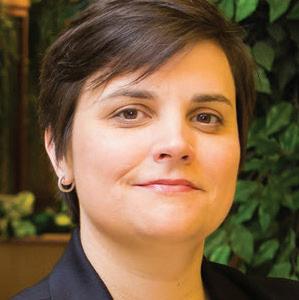
After graduating from the iSchool with her MLIS in 2011, she went on to become a respected law library leader Her last role was as associate dean for law library and IT services at the University of the District of Columbia’s David A Clarke School of Law
“Law librarians should be skilled in specialized and interdisciplinary research, information management and systems, data analysis, technology implementation, and instruction, among other things, and UW’s iSchool is uniquely positioned to meet those demands,” she said
Ph.D. alum takes helm of MHCI+D program
The University of Washington named Amanda Menking as academic director of its Master of Human-Computer Interaction + Design program Menking, a 2019 iSchool Ph D alum, will lead one of the top master’s programs in this rapidly evolving field
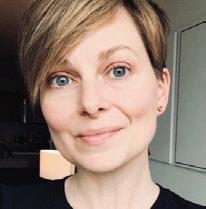
The Master of Human-Computer Interaction + Design is offered by four departments: the Allen School of Computer Science & Engineering, Human Centered Design & Engineering, the Information School and the Division of Design in the School of Art +Art History + Design, along with faculty from other UW departments The four units comprise the DUB (design: use: build) research group
ischool.uw.edu | 33 FACULTY | Updates
Carla Wale
Amanda Menking
Cindy Aden has seen it all
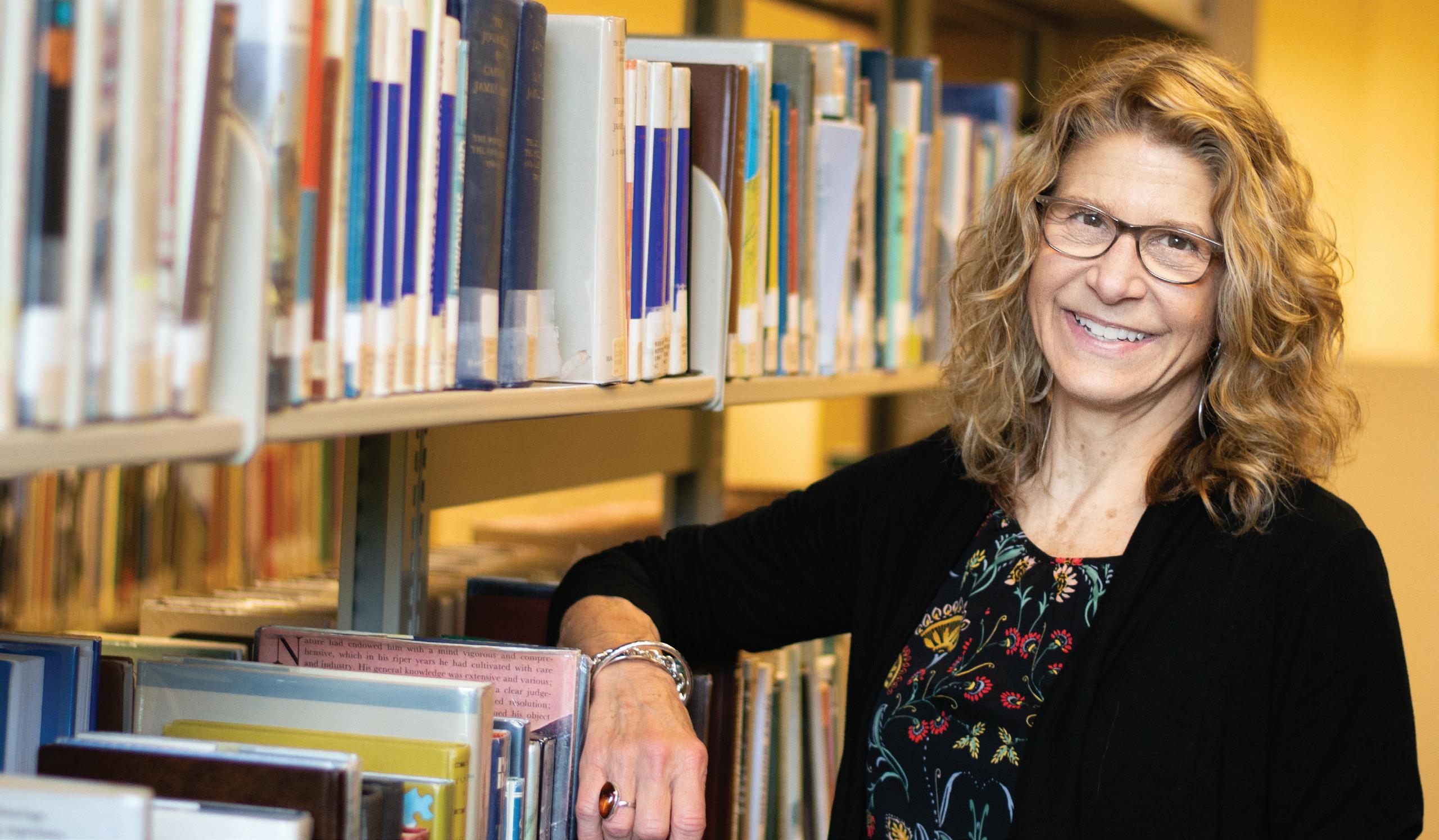
Over her career, the iSchool’s new Distinguished Practitioner in Residence has served libraries from every angle
By Mary Lynn Lyke
In her more than two decades away from academia, Cindy Aden has worked with libraries large and small, urban and rural, public and private — including gigs at Amazon, Corbis and, most recently, as the Washington state librarian. Her varied roles have included business analyst, director, tech-savvy innovator, researcher, metadata manager, networker and national influencer.
“I have served libraries from outside the traditional framework and seen them from many different vantage points,” says the multifaceted iSchool ’87 alum, who has also worked as a journalist at community newspapers.
“Newspapers and libraries are two sides of the same coin,” she says. “You’re trying to help people understand something better and contribute in a positive way to how the community runs.”
In August, she returned to academia to take over the role of Distinguished Practitioner in Residence at the iSchool. She brings with her a wealth of real-world knowledge and national ties. iSchool Dean Anind Dey says Aden’s public standing will help her influence the larger library field: “She understands the needs of the library as an institution, but also the needs for what the library represents and what it could be.”
UW colleagues are eager to see how Aden — former president of the Washington Library Association — approaches her new role. “With her rare and exciting professional profile, Cindy will be able to make broad and significant contributions to our curriculum, teaching, and a range of initiatives at the iSchool,” says Professor Carole Palmer, associate dean for research at the school. “She has first-hand understanding of the areas in which libraries are excelling, as well as the many challenges and local realities that constrain their work.”
The Distinguished Practitioner in Residence position, funded by a 10-year, $1.4 million grant from the Bill & Melinda Gates Foundation, is designed to bring practical knowledge to scholarly pursuits at the school. The two-year appointment involves teaching iSchool courses, helping to shape curriculum and conducting research related to the future of libraries, a key iSchool initiative. “This position is unique in the world,” says Dey.
The grant funds up to five professors of practice — Aden is the third. The first, Susan Hildreth, now a library consultant, encouraged Aden to keep the position on her short list. “Susan talked about how incredibly fun the role was, but warned it was also really difficult,” says Aden. “She told me: ‘This is the hardest job I’ve ever had.’ ”
Rolf Hapel, the previous Distinguished Practitioner in Residence, sees Aden as a smart fit for the position. “She has demonstrated deep insight into substantial issues and technically complicated matters related to the library profession,” says the library director from Denmark. “She also has impressive skills
ADEN, continued on Page 36
34 | iNews
Photo by Doug Parry
FACULTY | New at the iSchool
Beyond the books
Distinguished Practitioners in Residence bring the real world of librarianship into the classroom
By Mary Lynn Lyke
Students studying to be librarians need to know what they’re getting into, say local public library leaders. “This is a wonderful profession, but you need resiliency in working with the public all day. The staff encounters a multitude of social problems that weren’t there 30 years ago: homelessness, the digital divide, people with mental health issues. That’s all part of what we do,” says King County Library System Executive Director Lisa Rosenblum, who oversees 50 libraries in 36 highly diverse cities.
The iSchool is bringing this real-world awareness into its classrooms with the assistance of its Distinguished Practitioners in Residence, prominent library leaders brought to the UW to share their boots-on-the-ground expertise as teachers, colleagues, researchers and critical links to the library world. They work with Rosenblum and other public library leaders to align what’s being taught at the iSchool with what libraries actually need in the workforce.
“The practitioners are helping us to prepare students for the industry,” says Associate Teaching Professor Chance Hunt, who had a 25-year career in public libraries and government before joining the UW full-time. “The students need not just real-world examples or scenarios or case studies, they need the practical insights of people who’ve actually done the work.”
The Distinguished Practitioners have helped shape Master of Library and Information Science curriculum to emphasize needed skills such as adaptability, critical thinking and community responsiveness. “We want librarians with a real customer, social-services mindset,” says Rosenblum. “The old-school approach was how smart you were, how quickly you could look up information. Now it’s how well you embed in communities and align with community needs.”
They also need students who understand a core concept of librarianship: intellectual freedom. “Some students haven’t fully embraced the idea that libraries have a responsibility to present all viewpoints, even those that make them uncomfortable. We have made that known to Distinguished Practitioners and other leaders at the iSchool — that we need more intensive training in this area,” says Rosenblum.
Effective leadership training is a major emphasis pushed by Distinguished Practitioners. “The iSchool is now focusing on leadership skills and the leadership mindset, which is something we critically need in the
BOOKS, continued on Page 36
RESEARCH SHAPED BY PRACTICE
As part of their appointment, each person to serve in the Distinguished Practitioner in Residence role undertakes a research project that addresses how librarianship education aligns with the needs of public libraries
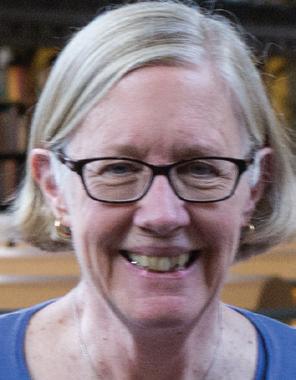
Susan Hildreth (2016-18): As the inaugural Distinguished Practitioner in Residence, Hildreth brought together faculty, students and library professionals for a pair of workshops where she challenged participants to think about how they would reshape MLIS instruction Her final report noted several key themes that emerged from the workshops Among them: making community engagement a key component of all MLIS coursework; using design thinking as a framework for MLIS courses so that students are prepared to apply it in their jobs; placing more emphasis on experiential learning, such as internships and Capstone projects; and examining all MLIS courses through the lens of social justice and racial equity
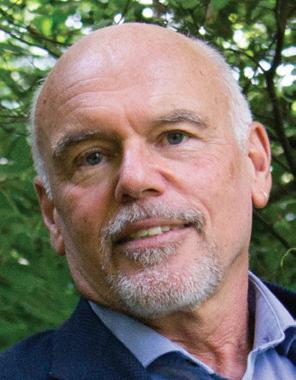
Rolf Hapel (2018-20): Hapel’s research project focused on public libraries’ role in combating misinformation In partnership with the Technology & Social Change Group (TASCHA) and the Center for an Informed Public, Hapel engaged with librarians to design Community Labs, which are designated spaces within libraries where interactive programs and activities are offered to allow patrons to explore pressing social issues such as misinformation Some of the inperson aspects of Hapel’s project were derailed by COVID-19, but the Community Labs are a key aspect of TASCHA’s research in the coming years
“The old-school approach was how smart you were, how quickly you could look up information. Now it’s how well you embed in communities and align with community needs.”
ischool.uw.edu | 35
“In a field like this, where people do leave the halls of academia and go out and work, there is a strong need for grounding in the true realities of the profession.”
ADEN, from Page 34
in navigating complex political realities.”
Aden says she is “over the moon” that she was selected. “It’s such a great opportunity to focus on things I love and bring my experience to bear,” says the state librarian, who has long served as an advisor to iSchool MLIS students. “I love to teach, love the University of Washington, and am so excited at the direction the iSchool is taking, with incredible researchers at the new Center for an Informed Public and TASCHA (the Technology and Social Change Group).”
Aden started out her library career with a bang, securing an internship at the Library of Congress. Her next positions were with UW Libraries: She was a reference librarian at Suzzallo Library before moving to the law library. She moved on to an associate directorship at Kitsap Regional Library, one of the first libraries in the country to offer free email addresses to all library cardholders.
Aden went corporate in 1998, taking a job as Amazon’s first professional librarian. In that role, she was charged with making searches more userfriendly. “We analyzed people’s searches every night to see what they were looking for and see if the search failed or succeeded.”
At Corbis, the digital image company, she supervised metadata, taxonomy and localization teams. At OCLC, the world’s largest library cooperative, leaders recruited her to join the business development team. “My boss taught me how to think more like a businessperson about opportunities we would have,” she says. “That has helped me in my way of talking about libraries ever since.”
Now she is thinking hard on which issues she’ll continue to explore and develop at the iSchool. Top topics for
her have included open data, equitable broadband access and bringing new technology, including virtual reality, to library programs.
One issue she’d like to address is e-books. Many publishers complain that library lending cannibalizes sales of e-books, and some have severely restricted library access to them. “It has been suggested on the part of authors, publishers and booksellers that the e-books to library model is broken and harming the whole ecosystem. Is that really true? And how do we adjust that?” asks Aden.
She also wants to help small, rural libraries. She visited many of them as Washington’s state librarian. “Oftentimes, in very small libraries, the person who leads them does not have an MLIS degree. Maybe the iSchool can do continuing education or a certification program to bring those people into the fold, give them the benefit of a broader perspective and the skills and training that would help them.”
Aden says she is excited to help educate would-be librarians at the iSchool. “In a field like this, where people do leave the halls of academia and go out and work, there is a strong need for grounding in the true realities of the profession.”
She wants her students to understand that libraries can no longer exist in a silo — that they must be active players in their communities. “They should see themselves in the larger ecosystem and not be afraid to reimagine how they might fit into the community and who their partners might be, including private-sector partners,” she says.
She expects to learn as much from her students as she teaches them. “They probably have a better idea than anyone of what the library of the future could be and how it will meet people’s needs.”
BOOKS, from Page 35
librarians we hire,” says Pierce County Library Systems Executive Director Georgia Lomax, who gives the iSchool program an enthusiastic thumbs-up.
“The practitioners are really important in shaping a new generation of library leaders,” says Lomax. “They’re connecting the learning, the philosophy, the ethics, the history, all the foundational pieces of our business to what that looks like in the real world. They really help students be better prepared and more knowledgeable about what it’s going to be like.”
The Distinguished Practitioner in Residence program, funded with a 10-year, $1.4 million grant from the Bill & Melinda Gates Foundation, launched in 2016 with former California State Librarian Susan Hildreth named as the first practitioner. Denmark’s prominent library innovator Rolf Hapel followed. The newest is Cindy Aden, whose travels across the state as the former Washington state librarian give her a deep working knowledge of even the smallest rural library’s needs.
Over their two-year term, the Distinguished Practitioners share their expertise widely. “They are our outside consultants,” says Rosenblum. “When I want my board to know what is going on in the profession, what the future thinking is, I use the Distinguished Practitioners to talk to them. We sometimes need to hear that big-picture thinking.”
The Distinguished Practitioner in Residence program is still young, just 4 years old, but it is already changing things up in the library world, making a sizable impact off campus and on. “To bring the practitioners’ level of collegial bridge-building and strategic thinking here has been a real asset to everyone in the school,” says Hunt. “Colleagues sit up differently, listen differently, learn differently, are energized by this new thinker coming into their community.”
36 | iNews
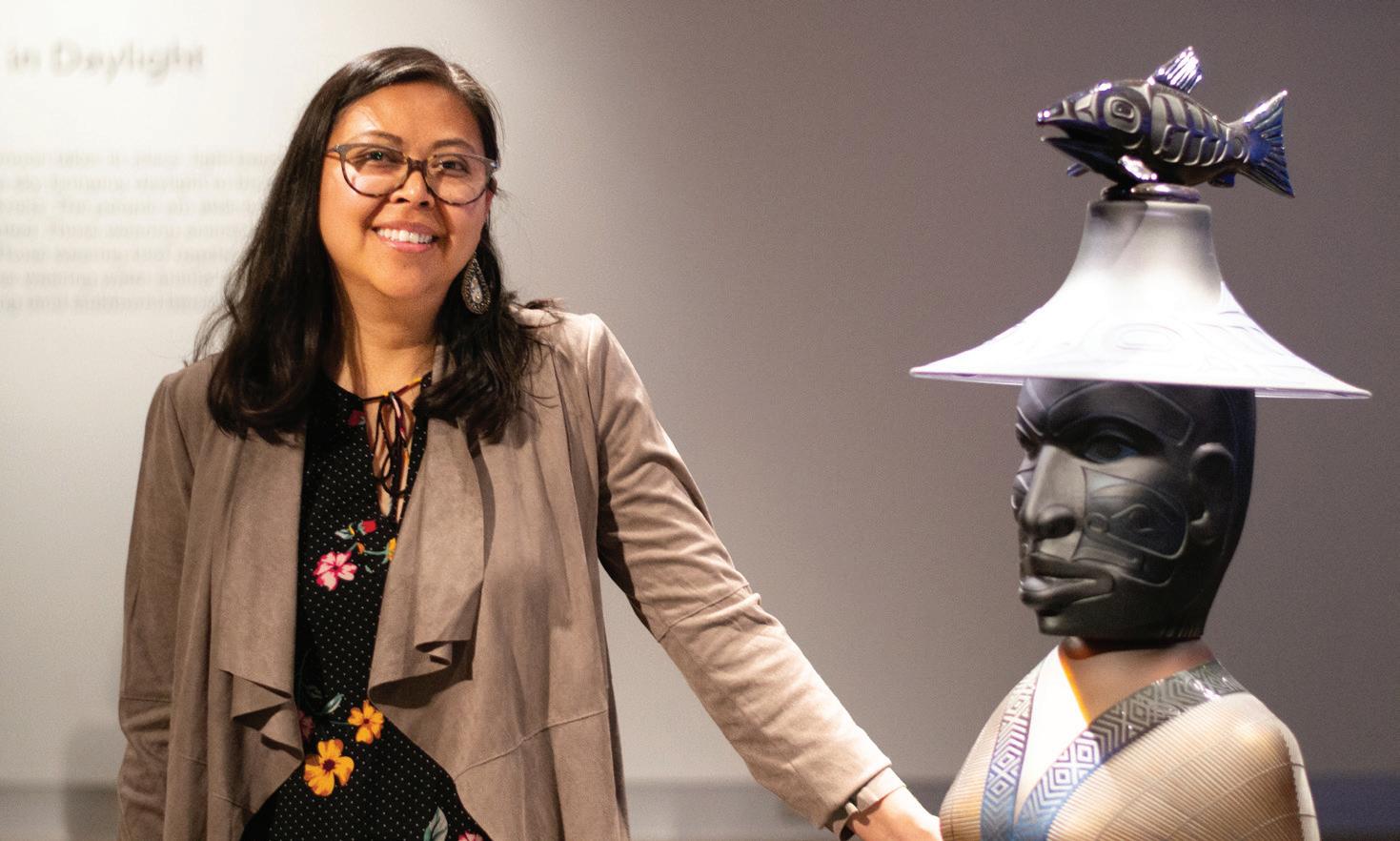
Belarde-Lewis receives inaugural fellowship in Indigenous knowledge
By Jim Davis
Miranda Belarde-Lewis probably was always destined to study art. On her father’s side, she is Zuni Pueblo, a tribe in the Southwest U.S. with a rich aesthetic tradition and love of adornment.
“If there’s something that we could paint on, we’re gonna paint it,” said the University of Washington Information School assistant professor. “We're gonna make it beautiful.”
On her mother’s side, Belarde-Lewis is Takdeintaan Clan from the Tlingit tribe, one of the Native groups in Alaska who cherish stories of the trickster Raven figure: “There’s this phrase that Ravens like shiny things. So, either way …”
There’s a less happy reason why Belarde-Lewis studies Native American art, a reason that dates back nearly a half a millennium. “I’m so invested in Native art because it's something that has survived 500 years of intense colonization,” she said. “It represents activities and ceremonies that were directly outlawed and banned and targeted for eradication through various federal policies.”
For many years, the only safe way for Native Americans to express their culture was through artwork, commodities often sold to tourists, she said. Belarde-Lewis has studied Native art, first in her work at museums and now in her academic career at the UW.
To further her study, Belarde-Lewis
was recently named the inaugural recipient of the Joseph and Jill McKinstry Endowed Faculty Fellowship in Native North American Indigenous Knowledge, the first endowment for the iSchool in this area. The award comes with funding that Belarde-Lewis can use with a great deal of discretion to apply for federal grants, bring speakers to the campus and the community, and aid in other ways with her research.
Associate Professor Emerita Cheryl A. Metoyer, director of the iSchool’s Native North American Indigenous Knowledge research initiative, is ecstatic for her former student and current iSchool colleague. “I’m doing my happy dance,” Metoyer said. “I absolutely could not be more pleased.”
The fellowship is a bright spot, but another achievement for Belarde-Lewis is on hold. She curated a Tlingit glass art exhibit called “Preston Singletary: Raven and the Box of Daylight,” created by glass artist Preston Singletary. It features the Tlingit story of how Raven transformed the world. The exhibit was headed to the Smithsonian’s National Museum of the American Indian this fall, but the opening has been pushed back due to COVID-19 until at least spring 2021.
Metoyer takes pride in Belarde-Lewis, recalling how she fondly watched her former student demonstrate her teaching method to a class when applying for a full-time iSchool position.
“She was able to explain not only the process of creating the pottery and all of the layers of symbolism that you see there, but also talk about the information that's part of the creation process from the start to the finish,” Metoyer said.
The general public often is ignorant of Indigenous issues, Belarde-Lewis said. One of the ways for Native Americans to reclaim the narrative is through art.
“Native art is information,” she said. “It's knowledge, and how that can be expressed on our own terms is just incredibly inspiring and empowering.”
Ph.D. fellowship to be awarded in Spring 2021
In addition to the faculty fellowship, the iSchool announced that it will award its inaugural Joseph & Jill McKinstry Endowed Ph D Fellowship in Native North American Indigenous Knowledge to a Ph D candidate in spring 2021 The fellowship recognizes the importance of raising and expanding the level of discourse concerning the intersection of information, technology and Native American communities
ischool.uw.edu | 37
Miranda Belarde-Lewis curated “Preston Singletary: Raven and the Box of Daylight,” which was on exhibit in 2019 at the Tacoma Museum of Glass. Photo by Doug Parry
Alumni updates
Where are you now? Let us know at ischool.uw.edu/alumni/updates.
INFORMATICS
David Ballantine, ’05, works at the Bill & Melinda Gates Foundation as a principal experience designer on their human-centered design team He works on building and improving their grants and contract management system, data sharing and publishing systems, and enterprise business intelligence service
Shannon Becker, ’12, works as a scrum master and recently became a release train engineer at Safeco Insurance
Simran Bhatia, ’20, is working as a behavior and engagement analyst at Accolade Inc , a personalized health advocacy company in Seattle
Dylan Bussone, ’13, works as a software engineer at Zillow
Jonathan Cady, ’20, is working for Amazon as a software development engineer in Seattle
Evelyn Carlson, ’14, is a senior PM at Microsoft, working on Commerce
Pierce Cave, ’20, started as a software development engineer at Amazon Web Services
Laura Freeman, ’19, is working as a product designer at Luum, where she builds enterprise commuter benefits management software to improve the employee commute and promote more sustainable commute habits and transportation systems
Austin Gebauer, ’15, works as a software engineer at Hashicorp, a company founded by University of Washington alumni He works on opensource software products called Vault and Terraform
JJ Guo, ’19, is working as a software engineer at Smartsheet
Christine Hill, ’15, is working as a UX designer at Amazon, developing internal tooling within Alexa She’s written some jokes that you can hear Say, “Alexa, tell me a Dungeons and Dragons joke” to hear some of them
Daniel Kore, ’10, is a senior product manager at T-Mobile, leading the device financing analytics group He previously opened a data and analytics consulting firm and worked at Accenture
Christopher Lam, ’10, is a senior product designer at Pathstream and has designed at companies such as GoodRx, Clover Health, TaskRabbit, Mozilla and Amazon He is also hip-hop dancer and breakdancer for Ultimate Alliance Dance Company
Kaleb Lora, ’13, joined Amazon in 2020 as a senior product manager for Prime Gaming
Peyton Lyons, ’19, is working at Liberty Mutual as a data analyst in the Analyst Development Program Peyton is also involved in the Liberty Mutual employee resource group, Amigos, as a west region marketing and communications co-lead
Tristan Macelli, ’20, works at Saama Technologies of San Jose, California, as a data analyst consultant
Gianni Mancinelli, ’17, works in interaction design and user research at Bloomberg, primarily focused on designing News and Charts experiences on the Bloomberg Terminal
Rheanna Mistry, ’16, is working as a data analyst at Decisive Data
Thomas Ng, ’10, is working as a
research product manager at Facebook Reality Labs Research in Redmond
Alex Park, ’20, interned as a data analytics intern over the summer at Puget Sound Energy and is converting to a fulltime position as an associate application development analyst
Ezra Park, ’13, has been the product management lead working on the Surface Duo at Microsoft, and recently was promoted to principal
Nick Polsin, ’18, moved to New York City to work for NBCUniversal in a rotation program, with positions in cybersecurity, network engineering, and cloud infrastructure Nick was recently promoted to a new role as a cloud solutions architect
Katherine Root, ’12, is the director of design at Mighty Networks
Ansel Santosa, ’13, and his family moved to Whidbey Island to start Ballydídean Farm Sanctuary He continues to work for Pioneer Square Labs
Matt Shannon, ’12, works on the Amazon finance organization’s red team, where he conducts red team engagements, penetration testing and other information security assessments
Joel Shapiro, ’11, is guiding technical architecture in Atlassian’s marketing and sales technology groups He also founded a lightweight automation and robotics company
Michael Siruno, ’10, works as a people manager with AT&T’s collegehiring Technology Development Program
Robin Smith, ’04, is a principal program manager at Microsoft and the product owner for the Microsoft
38 | iNews
Sustainability Calculator, which calculates a customer’s cloud carbon footprint and carbon savings from using Azure
Emily Tao, ’20, is working as a software engineer at Tableau Software
Andrew Vitollo, ’11, is working on improving web authentication methods and standards at Yubico
Selene Wartell, ’19, is working as a software engineer for GitHub in Pittsburgh, Pennsylvania
Xu (Ellen) Xu, ’07, works as a UX designer at Microsoft
John Yun, ’17, is working as a program manager at Amazon for the University Operations Interviewing Program
Joy Zhang, ’12, joined Affirma Consulting as a project manager and was promoted to Project Management Office manager in March 2020
Maxwell Zhou, ’18, started at Visa as a penetration tester for mobile and IoT platforms After a year, Maxwell moved to a cybersecurity firm as a senior cybersecurity consultant
MLIS/M.LIB
Margaret Ansell, ’12, was promoted to associate chair of Gainesville faculty at the University of Florida Health Science Center Libraries
Nicholas Belkin, ’70, is a distinguished professor emeritus at Rutgers University
Freeda Brook, ’12, is the acquisitions and resource management librarian at Luther College in Decorah, Iowa
Elke Bernal Bruton, ’08, is the program manager for the Oregon Talking Book and Braille Library at the State Library of Oregon
Leslie Denning, ’19, is working as a metadata specialist at the Walt Disney Company at the enterprise level within Corporate Brand Management Leslie works with 15 other librarians to govern the master data about IP owned by Disney
Nic Dobbins, ’13, works as UW Medicine Research IT’s software engineering lead and is studying as a Ph D student in Biomedical Informatics, also at the UW
Maggie Dull, ’11, was awarded the 2020 Ester J Piercy Award from the Association for Library Collections & Technical Services
Bethany Ellerbrook, ’19, accepted a position as collections coordinator for Walt Disney Animation Studio’s Animation Research Library
Kylie Fullmer, ’10, became director of the Whitman County Rural Library District, based in Colfax, Washington Its Malden branch burned to the ground in the Babb Road Fire the evening before her first day She previously served as director of the East Adams Library District based in Ritzville, Washington
Cherise Fuselier, ’19, is a children’s librarian with the Tacoma Public Library
Deborah Hamilton, ’11, is a strategic service librarian for Pikes Peak Library District in Colorado Springs She also serves as chair of the Board of Directors for the Justice Center, a nonprofit providing free and low-cost legal services
Sheila Hosner, ’78, is working as a communication specialist for the Northwest Portland Area Indian Health Board
Grove Koger, ’74, wrote an essay, “Looking Back with John O’Hara,” that appeared in the 2020 edition of The Limberlost Review: A Literary Journal of the Mountain West, and a story, “Jean Cocteau’s Apples,” that appeared in the Writers in the Attic volume “Apple ”
Beth Jarrell, ’19, was promoted to fulltime reference librarian at Sanibel Public Library, where she is working on creating the library’s first digital archive and providing programming on information literacy skills
Cassie Koldewyn, ’17, is working as a librarian and youth materials selector for
the San Diego County Library
Adam Lathrop, ’16, is working as a data scientist for Northrop Grumman in Monterey, California He helps support a variety of analytics and research projects at the lab, with a focus on data architecture
Michael Maben, ’88, is the 2020 recipient of the Renee D Chapman Memorial Award for Outstanding Contributions in Technical Services Law Librarianship from the American Association of Law Libraries Technical Services Special Interest Section (TSSIS) This is the highest award bestowed by the TS-SIS
Joe Marquez, ’05, is a qualitative researcher at Nike after working as an academic librarian for the past 10 years
Jessica Martinez, ’18, is an assistant professor and science librarian at the University of Idaho
Alexis Meyners, ’02, is working as an independent contractor in online marketing in Spain and has lived there since 2003
Jannah Minnix, ’13, is working as an outreach librarian with Sno-Isle Libraries in Snohomish County In 2019, she published Awakening to Wildfire: Stories of the Mendocino Lake Complex Fire, a nonfiction anthology about wildfires that struck Redwood Valley, California, where she previously served as a librarian
Christina Miskey, ’18, started a new position as a scholarly communication librarian for Research Infrastructure, where she works closely with colleagues to support faculty research
Sandra O’Connor, ’77, this year was elected chair of the North Carolina Real Estate Commission and vice chair of the City of Greensboro, North Carolina, Zoning Commission
Phoebe Owens, ’08, has written a fiction podcast with her 6-year-old son and her partner “The Adventures of Power Dog in Dogland” is about a planet of dogs and their adventures
ischool.uw.edu | 39
Robert “Bob” Pankl, ’70, retired from the Tacoma Public Library in 2017 after 44 years He now spends part of his time volunteering
Carrie Phillips, ’06, was recently appointed interim director of Musselman Library at Bluffton University in Ohio, following 15 years as an archives and special collections librarian for the same organization
Miguel Ramos, ’06, is working as a digital library project manager at SPIE, the international society for optics and photonics
Benjamin Riesenberg, ’18, is working as a metadata librarian in the University of Washington Libraries Cataloging and Metadata Services unit
Amanda Robb, ’20, started as a Chinese-language materials archivist for the Hoover Institution at Stanford University
Ellen Shatter, ’69, has been living in Providence, Rhode Island, since her retirement in 2003 from her job as a reference librarian at San Francisco Public Library
Jackie Spurlock, ’71, retired in 2018 as manager of Vancouver Community Library in the Fort Vancouver Regional Library District She is a co-founder and current board member of Peace Corps Iran Association, representing Peace Corps volunteers who served in Iran between 1962 and 1976
Anna Coder Sill, ’82, is in her 47th year with the King County Library System, where she started as a page at her local Richmond Beach Library branch She has been a library technical assistant, branch manager and children’s librarian
Monte Steiger, ’69, is recuperating after two knee surgeries to repair damage that occurred while he was gold panning in Idaho’s Bitterroot Mountains
Gina Strack, ’09, received the Mentor Award from the Conference of InterMountain Archivists in May 2020
Kathy Swart, ’99, published a
conference proceedings paper in Seminar on the Acquisition of Latin American Library Materials (LXII) and has a book chapter in the 2020 ACRL publication Intersections of Open Educational Resources and Information Literacy
Julie Tanaka, ’12, joined Arizona State University as curator of rare books and manuscripts in May 2020 and later became interim head of Distinctive Collections
Emily Thompson, ’16, is in her third year as the outreach and events manager at the UW’s Stroum Center for Jewish Studies
Veronica Vichit-Vadakan, ’10, became a faculty reference librarian at Portland Community College after 10 years as a systems librarian at the Oregon College of Oriental Medicine
Nichole Maiman Waterman, ’12, launched Waterman Works, a consulting firm specializing in nonprofit and small-business capacity-building and operations
Albert Ybarra, ’14, is the chair and director for the Library and Learning Resource Center, and the distance learning/education coordinator at Los Angeles Mission College In response to COVID-19, Albert led a team of faculty to transition more than 250,000 students to online learning
Wendy Zimmerman, ’05, has worked at the Fairbanks Public Libraries in a range of positions over the last 20 years
MLIS LAW
Kristina J. Alayan, ’10, was elected chair of the American Association of Law Libraries Council of Chapter Presidents
Sherry Leysen, ’11, was appointed assistant professor of law and director of the Hugh and Hazel Darling Law Library at Chapman University’s Dale E Fowler School of Law
Stephen Richards, ’18, is a legal reference analyst for LAC Group, on
assignment for a law firm
Kenneth Rudolf, ’90, retired as director of the law library at the University of La Verne He is now a professor emeritus of law
Cassie Walker, ’13, is the assistant director for scholarly initiatives at the Underwood Law Library at Southern Methodist University
MSIM
Avanti Chande, ’18, changed teams within Walmart Labs and is now a senior data scientist in the Global Data team She mentors a few iSchool students and other new grads trying to enter the field of data science
Ian Cross, ’19, is working as a research manager for GfK, which supports Microsoft’s consumer marketing
Steve DeBroux, ’13, is at Seattle Genetics, working with the pharmacovigilance (patient safety) team as a senior BI analyst
Shipra Gupta, ’18, started working as a senior program manager at Microsoft after previously working at T-Mobile as a technology product manager
Haranshvir Gujral, ’17, took a role with Oracle to work on its secondgeneration Cloud Infrastructure He previously led the user experience team at Structural ai, a small Midwestern startup
Zerrin Hejazi, ’06, launched a new business called CleanUV to provide everyone a safe and clean environment by using UV sanitization, the same process used for decades to sterilize environments
Nick Hernandez, ’19, took a new role as a senior product manager at Renaissance Learning, an education technology organization
Paula Land, ’14, has been a senior content strategist for the NASA Earth Science Data Systems communications group since August 2018
Amy Lee, ’13, has been working as a product manager since 2015 She is
40 | iNews
currently a senior product manager at Zendesk
Andrew Magnusson, ’15, published his first book, Practical Vulnerability Management, from No Starch Press It is a hands-on guide to building a vulnerability management system using free tools and some Python to glue it all together
Amanda Cummings Ouellette, ’17, is an analytical lead at Google in Seattle Her primary role is consulting with external partners on advertising measurement strategies, and also leading internal analyst workshops on data visualization
Kameron So, ’16, began his tenure as the vice president of digital product strategy at Fisker Inc , an EV and e-mobility startup, where he leads app and web development as well as digital product user experience
Harkar Talwar, ’19, is working as a software development engineer at Amazon
Xiaotong Yang, ’14, is working in UX for experimental products at Google Research
Yaxing Yao, ’14, is a postdoc fellow in the School of Computer Science at Carnegie Mellon University and will join the University of Maryland, Baltimore County, in January 2021 as an assistant professor
Achievements

Justin Wadland, MLIS ’03, won the 2020 UW Distinguished Librarian Award for his work at the UW Tacoma Library, where he helped established the UW Tacoma Digital Commons, the campus institutional repository The annual award recognizes a librarian whose contributions advance the mission of the libraries and the university in the areas of teaching, learning, research and innovative approaches to practice
Sacramento Public Library Director and CEO Rivkah Sass, ’78, received the 2020 Charlie Robinson Award from the American Library Association
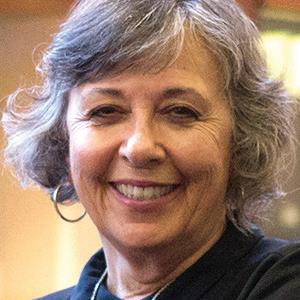
The prestigious annual award honors a public library director who is an innovative agent for change Sass was honored with the iSchool Distinguished Alumni Award in 2018
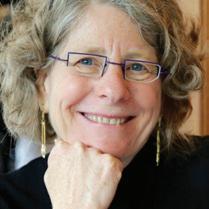
Rachel Ivy Clarke, ’16, is an assistant professor at the Syracuse University School of Information Studies Her research focuses on the application of design theories and methods to facilitate the systematic, purposeful design of library services and education
Bryce Newell, ’15, has been an assistant professor at the University of Oregon’s School of Journalism and Communication since 2019 He teaches courses on media law, internet law and cybercrime His research focuses on police surveillance, privacy, immigration, and the information practices of police officers and migrantaid workers
Professor Batya Friedman, a pioneer in ValueSensitive Design, was awarded an honorary doctorate from Delft University of Technology in the Netherlands The honor was one of two given to researchers who “symbolize new perceptions in design ”
Associate Professor Chirag Shah received the Karen Spärck Jones Award, in recognition of his achievements in natural language processing and information retrieval He is the 11th recipient of the award, given to a thought leader in academia or industry
Professor Amy J. Ko was accepted as a senior member of the Association for Computing Machinery The recognition honors her technical leadership and contributions to the field
Distinguished Practitioner in Residence Cindy Aden was among the first group honored by the Federal Communications Commission with a Digital Opportunity Equity Recognition (DOER) Award The awards honor Americans working to close the digital divide in communities without reliable broadband access
Three iSchool MLIS students won 202021 American Library Association Spectrum Scholarships
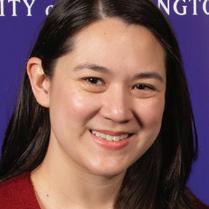
Jacqui Howell is in her third year as an online student, living in Snohomish County Alice Pérez Ververa is a second-year online student in the MLIS program who lives in the Portland, Oregon, area Lex Barlowe is a first-year online student who splits her time between New York City and Puerto Rico
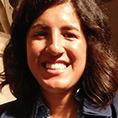
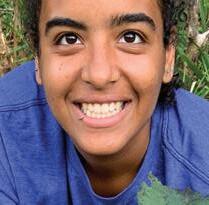
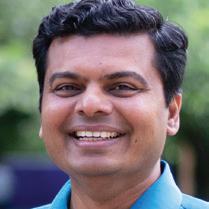

Drew Gallardo, ’20, and his group, Team Tremor Vision, finished in the top three of Microsoft’s Imagine Cup in May Gallardo and two computer science students designed an online platform that works to streamline care for early-onset Parkinson’s disease patients Imagine Cup is a global technology competition that fosters technology solutions for the world’s most pressing issues
ischool.uw.edu | 41
Justin Wadland
Rivkah Sass
Batya Friedman
Chirag Shah
Jacqui Howell
Alice Pérez Ververa
Lex Barlowe
Drew Gallardo
PH.D.
TASCHA, from Page 11
benefit of the Gates grant, Coward said. Gates-funded research has also been key to attracting additional funding. TASCHA’s experience forming partnerships and its vision for libraries as allies against misinformation were key factors in winning a $5 million grant from the John S. and James L. Knight Foundation to launch the Center for an Informed Public (CIP). TASCHA has been involved in CIP outreach activities such as KUOW radio’s “Stand with the Facts” series.
Several other TASCHA projects illustrate the impact of the Gates grant, among them:
Civic engagement through ConnectedLib: Coward and iSchool Associate Professor Katie Davis are building on the ConnectedLib Toolkit, which Davis’ research team developed to help librarians incorporate digital media into their work with youth. With additional funding from the Institute of Museum and Library Services (IMLS), researchers will tailor the toolkit to support public librarians in small and rural libraries and develop a new module that focuses on youth civic engagement.
Open data for program planning: In another IMLS-backed project led by TASCHA’s Chris Jowaisas, researchers are working with librarians to sort through the mountain of available open data and find ways to make it useful to them. For example, a library could use data on a topic such as homelessness to inform programs that help their communities.
Putting E-Rate data to work: The Federal Communications Commission’s E-Rate program makes broadband services more affordable for schools and libraries. In collaboration with the American Library Association and Public Libraries Association, TASCHA is using open data to identify trends in participation in and use of the program.
Advancing libraries as hubs for development in Africa: Public libraries have largely operated under the radar across Sub-Saharan Africa. TASCHA is trying to change that by working with public libraries to enhance their visibility and promote their expertise in ways that can attract international donors. To date, the project has crowd-sourced public library locations in 27 countries.
MSIM, from Page 30
“I like her emphasis on leadership and approaches we can employ in everyday life and work,” Li said.
***
Annabi employed those leadership and operational skills as program chair starting in 2019, when she took the reins from McGann. Where creating a new vision and structure for the program played to McGann’s strengths, executing that vision played to Annabi’s.
Annabi has focused on increasing access to the program, particularly among underserved communities. Adding fully online tracks is a prime way to add access to the MSIM, and she has spent much of the past year leading the effort to get them up and running. The first fully online MSIM cohorts will begin their studies in spring.
“She’s an extremely astute operational person, digging down into the details and making sure the operation is humming and that we’re doing everything as efficiently as possible,” said McGann, who continues to teach in the program. “She is a master at executing. That’s rolling the sleeves up and doing the tough work to get these things moving forward and making sure they’re continuously improving and successful.”
Both Annabi and McGann are quick to credit Dey for his support and other faculty for showing a passion for the MSIM and serving as “champions” for the specializations. Chirag Shah, Emma Spiro and Jevin West have shaped the data science courses; Jacob O. Wobbrock has led the way on user experience, and Mike Doane on information architecture. The addition of Andrew Reifers has been a boon to the cybersecurity specialization. Richard Sturman has been a key contributor, teaching core courses and now leading the iSchool Capstone endeavor. Annie Searle has made a big impact, particularly on the Mid-Career track. They’re just a few among a large contingent of core and guest faculty who have contributed to the program’s success.
Doane, who teaches several iSchool courses, credits the combination of McGann’s business background and
“We appreciated Sean for what he did, and we appreciate Hala for what she’s doing. It’s benefited us that they’re not the same. It’s a yin and yang, it’s a balance.”
Annabi’s expertise with information science for finding the MSIM’s niche. Its roots are in library science, but its focus is on core aspects of information management such as user experience, information security, information architecture and data science. Its courses are infused with a social conscience, teaching awareness of the ramifications of people’s decisions.
“We’re attracting students who aren’t quite the MBA mold and aren’t quite the computer science mold. I think that hybrid is where our strength is,” Doane said. ***
Doane said the program has gained from both McGann’s strategizing and from Annabi’s hands-on, decisive leadership.
“We appreciated Sean for what he did, and we appreciate Hala for what she’s doing,” he said. “They’re different, and I think they had to be. It’s benefited us that they’re not the same. It’s a yin and yang, it’s a balance.”
There’s also a balancing act involved in working closely together as a married couple, but Annabi and McGann try not to let too much shop talk invade their personal lives. They enjoy cooking and hiking together, and going on long walks. They bring the same energy to their lives away from the job that they have to the MSIM program.
“We’re all about the outdoors, health and wellness,” McGann said. “We walk for hours and hours around Seattle or wherever we might be. A good day for us is 30,000-plus steps.”
42 | iNews
‘An activist and an advocate’
Allyson Carlyle, who died in April, is remembered for her intellect, her calm, and her care for others
By Mary Lynn Lyke
Allyson Carlyle didn’t hesitate to speak her mind. So when she first read Ph.D. student Joe Tennis’ writing, the iSchool associate professor was blunt. “She said she was going to have to rewrite every word in my dissertation,” says Tennis, now a professor at the school.
She wanted shorter sentences, more direct statements, less highfalutin language and, above all, clarity. “She was very particular about accessibility. She wanted us to translate very complex concepts into clear English for a wide audience,” says Tennis.
Carlyle, beloved member of the iSchool family and leading scholar in the field of cataloging, died unexpectedly on April 4. She had learned only a few days before that she had a brain tumor. “When Allyson called to tell me, her main concern was her remaining doctoral students. She didn’t want them to slip through the cracks in case she wasn’t able to complete the paperwork,” says iSchool Associate Professor Emeritus Cheryl Metoyer.
“That was typical of Allyson,” says Metoyer. “It was never about her, it was about what was best for students or the school, always.”
Carlyle was born in Detroit in February 1954 and raised in Montana. She headed into academics after serving with the Peace Corps in Africa and working in libraries in Ohio, Washington and California. She earned her Ph.D. from the Graduate School of Library and Information Science at the University of California, Los Angeles, in 1994. She was, colleagues say, “a librarian with a capital L.”
Recruited to the iSchool in 1996, she

oversaw its evolution from a library science school to a tech-savvy information school, taking a leadership role as the new school’s first associate dean for academics. “I think she was part of the glue that held the iSchool together,” says David Levy, a professor at the school.
Longtime colleagues describe her keen intellect, integrity, passion for social justice and self-deprecatory humor. “She laughed at herself and at the ridiculousness of things. And sometimes ridiculous things happen in a scholarly community,” says Harry Bruce, professor emeritus and dean emeritus of the iSchool.
A serious student of Tibetan Buddhism, Carlyle had a quality of stillness and grace about her, say colleagues. Her calm presence made her a natural leader in faculty meetings. “She was a steadying voice when discussions became contentious,” Bruce says. “She was inclusive to all opinions; she made sure all voices were heard. She marshaled people back together.”
Her students describe her as a strong cheerleader. “She believed in me at times I wasn’t sure I could do it,” says Beth Patin, one of Carlyle’s last Ph.D. students. “Allyson would say, ‘This is 100 percent something you can do and we need to hear your voice.’ ”
Through Carlyle, Patin was the beneficiary of a Washington Doctoral Initiative
grant designed to increase the number of minority leaders in library and information science. It was one of many grants Carlyle used over the years to pull historically underrepresented students into the school. “She was an activist and an advocate. She made things happen. She understood power, understood powerlessness, understood poverty and the implications of all those things in terms of higher education,” says Metoyer, who is Eastern Band Cherokee and heads the school’s iNative research group.
Carlyle, who helped recruit Metoyer, was determined to bring Native and Indigenous voices to the school. She also worked closely with tribal libraries and established the Sherman Alexie and Lethene Parks Endowed Fellowship in Tribal and Rural Librarianship. The fellowship is accepting donations in her honor.
Off-campus, Carlyle was master of many things. She loved hiking, birding, crocheting, and reading mysteries and fantasies. She was a wizard in the kitchen, baking divine breads and three-tier cakes and whipping up perfect soufflés. She also created beautiful gardens full of sunflowers, hollyhocks, foxgloves, and euphorbias. She had just started planting tomatoes and salad greens and was working on an arbor for grape vines, says her longtime companion Lisa Fusco, a retired iSchool senior lecturer.
No matter how busy Carlyle was, the iSchool came first, says Fusco. “She was a super-organized person and she always prioritized her academic work.”
Carlyle officially retired from the iSchool in 2018, but continued working part-time, offering one cataloging class a year. The 66-year-old had just decided the next quarter would be her last. On the Friday before her death, she talked about her retirement with a lifelong friend in Greece, Jerome Poynton. She told him about the brain tumor and said: “I’m very happy. My Buddhist practice has prepared me for this.”
Visit our memorial website: allysoncarlyle.ischool.uw.edu.
ischool.uw.edu | 43 IN MEMORIAM
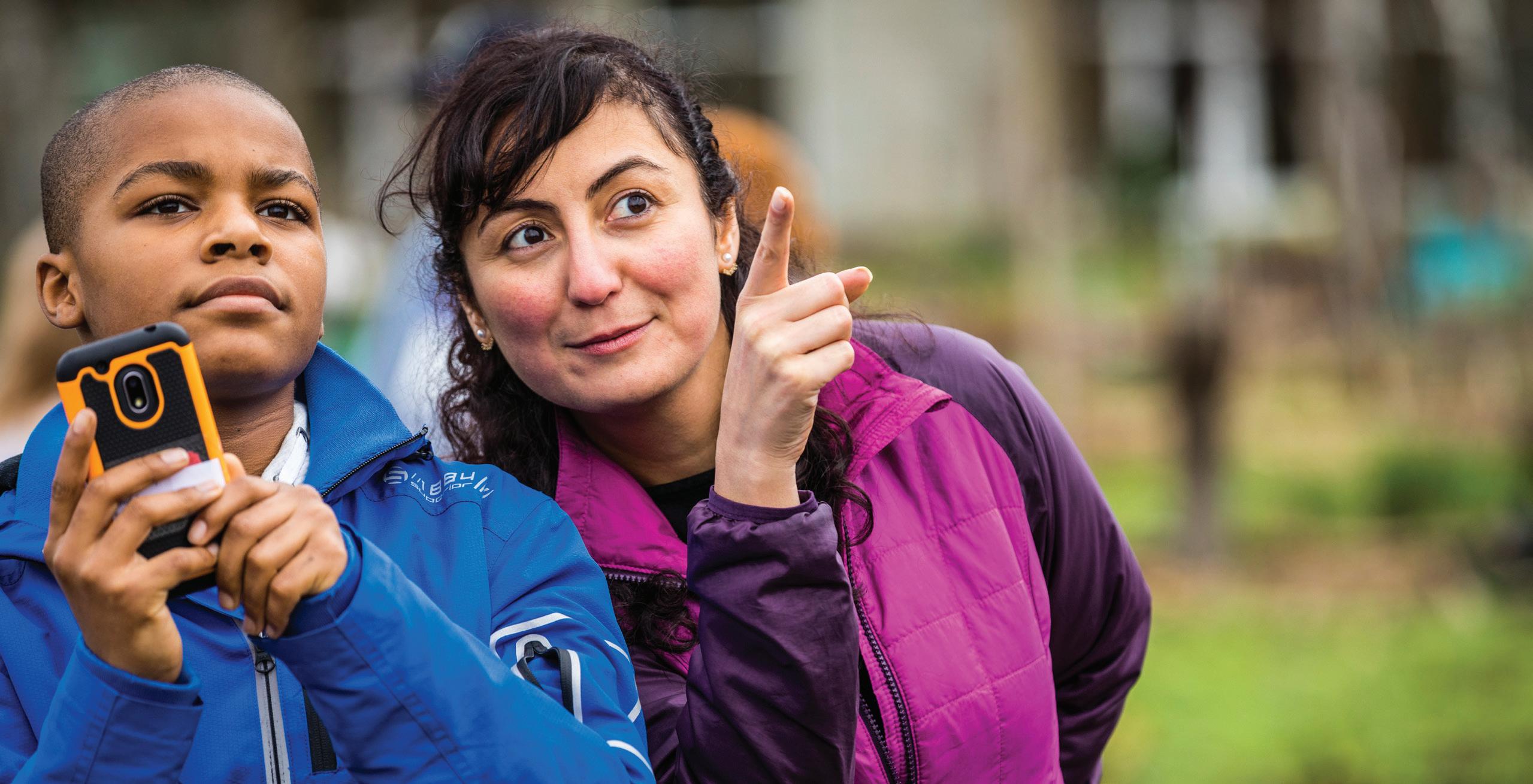
SUPPORT LEADING-EDGE STUDENT EXPERIENCES Make a gift today or for the future Give now: With a qualified charitable distribution* from your IRA, you can directly support students. Give for the future: One of the simplest ways to leave a legacy at the University of Washington is by naming the UW as a beneficiary of your IRA, retirement plan, bank or brokerage account, or life insurance policy. Contact the Office for Planned Giving for assistance with your gift. 206-685-1001 | 800-284-3679 giftinfo@uw.edu | giving.uw.edu/planned-giving *Conditions apply, check with your tax adviser. Information School University of Washington Box 352840 Mary Gates Hall, Suite 370 Seattle, WA 98195-2840





































 Morya Breland
Morya Breland














































